|
Coming Soon
0 Comments
Safety, Dreams and Peace of Mind (Originally published on SpokaneFavs)
How good we feel when we wake up is correlated with how well we sleep and the contents of our dreams. How well we sleep and dream is related to our peace of mind and level of anxiety. Recent research put it this way, “Waking mental well-being is assumed to be tightly linked to sleep and the affective content of dreams. Healthy participants completed a well-being questionnaire, followed by a three-week daily dream diary and ratings of dream affect [positive or negative]. Multilevel analyses showed that peace of mind was related to positive dream affect, whereas symptoms of anxiety were related to negative dream affect. We propose that whereas anxiety may reflect affect dysregulation [imbalance] in waking and dreaming, peace of mind reflects enhanced affect regulation in both states of consciousness. Finally, our study shows that peace of mind complements existing conceptualizations and measures of well-being.” (Sikka, P., H. Pesonen, et al. (2018). "Peace of mind and anxiety in the waking state are related to the affective content of dreams." Sci Rep 8(1): 12762. [Full Text] https://www.nature.com/articles/s41598-018-30721-1.pdf This idea of a correlation between sleep, well being and peace is reflected in several languages including Lango, a Southern Luo dialect spoken by the Lango people of Uganda and the Sudan. Here are some words for peace in Lango: "Kuc" (peace) "Kuch" (to be quiet, to be at peace), "Kweo" (to make cool, to pacify), "Ayom" (soft, peaceful), "Morembe Ayom" (greeting), and "Buti Ayom" (sleep softly, well). Sleep Peacefully In the Lango language of Uganda and Sudan “ayom” means soft and peaceful "buti ayom" is to sleep softly and well “morembe ayom" is a greeting a wish of peace for the morning of well being after sleeping softly Another Lango word "kuc" means peace "kuch" is to be quiet to be at peace both words correlating peace and quiet may we each experience “ayom” and “kuc” peace, sleep and well being In Bambara another language of Africa sleep and peace are correlated more directly in a common morning greeting. "Hèrè " and "Errébé" mean peace in this language of Mali. Sleep Peaceful Good Morning In Bambara, the language of Mali in West Africa the way you say good morning "Hèrè sira wa?" means did you sleep in peace often the answer is "hèrè dogon" or peace only Similar in the Dyula of West Africa did you sleep in peace? is "hèrè sirawa?" and peace only is "hèrè dron" Try this. Each morning for a few days, wake up and say to yourself out loud or to another person, "Good morning Peace!" in English or another language. In your mind and with your words, frame your day as one with peaceful relationships intertwines with inner peace. A common northern Somali greeting is “Ma nahad baa” or “is there peace.” In Somali spoken in Somalia, Djibouti, and Ethiopia, the word for peace is “Nabáda.” “Nabadda maanka” is peace of mind. Found Poetry The following poem is what is called a found poem, meaning the words were found in an essay or some other form of writing then teased out to create a poem. The order of the words can be changes in the process and sometimes the whole meaning of the essay can be different in the poem. Sometimes a found poem distills the words already written on a page, up to their essence. This is also what is known as a Persona poem or a poem written by a poet but from another person’s point of view. Trying literally to walk in another person’s words or trying to share another’s point of view while inhabiting their own body and experience. Mohamed Maine Seed The proud son of Somali immigrants traversed oceans and continents to escape brutal civil war seeking the American dream for themselves and their children enduring hardships discrimination, poverty and violence struggling to understand who I am where do I belong we were too Somali too Muslim Black Foreign the American Dream out of reach but incredible friends and mentors pushed me to think otherwise I have a place in this country with good people including diversity and the freedom to be who you are in a better place I hope one day to welcome the schoolgirl from Syria the young entrepreneur from Iraq the old poet from Somalia where we have a Somali proverb when we see injustice “Dhiiga kuma dhaqaaqo?” “Does your blood not move?” I am moved. Capturing a similar dream for all Africa, Nelson Mandela said, “I dream of an Africa which is in peace with itself.” May we all find peace as we sleep, dream, and in all our waking hours with the help of words from our own native tongue and the African languages of Lango, Bambara, and Somalia. Sleep Peaceful Good Morning In Bambara, the language of Mali in West Africa the way you say good morning "Hèrè sira wa?" means did you sleep in peace often the answer is "hèrè dogon" or peace only Similar in the Dyula of West Africa did you sleep in peace? is "hèrè sirawa?" and peace only is "hèrè dron" Exercise Each morning for a few days wake up and say to yourself or out loud or to another person, "Good morning Peace!" in English or another language. In your mind and with your words, frame your day as one with peaceful relationships and inner peace. Originally posted on SpokaneFavs: Safety, Dreams and Peace of Mind ... How good we feel when we wake up is correlated with how well we sleep and the contents of our dreams. https://spokanefavs.com/safety-dreams-and-peace-of-mind/
"Nagaya" is peace in Afar, also known as Oromo, a language of Ethiopia, Eritrea, Djibouti, Kenya, East Africa, and the Horn of Africa. A common greeting is “bultiin isaanii nagaya?” (is your night peaceful?) to which the common answer is "nagaa keessa walgarra" (we see one another in peace). Think about how you greet people and how you respond to their questions about your sleep, your health, your mood, etc.
Afar: Qafár af (aar-000), Afar, Oromo, Afaraf, Danakil, Denkel, `Afar Af, Adal, Afaraf, Qafar, Qafar af, ʿAfár af, Aussa, Ba'adu, Central Afar, Northern Afar, Baadu, Adal, Affar, Affarigna; Dialects: Northern Afar, Central Afar, Aussa, Baadu (Ba`adu), a Afro-Asiatic, Cushitic, Eastern, Lowland Semitic language--"Salaamata" (peace), "Nagaya" (peace), "Nagaa" (peace), "Nagaa keessa walgarra" (we will see one another in peace)—Ethiopia, Eritrea, Djibouti, Kenya, East Africa, and the Horn of Africa—Djibouti (Jībūtī, جيبوتي, Djibouti), Eritrea (Iritriya, إرتريا, Erta, ኤርትራ), Ethiopia (Ityop'ia, ኢትዮጲያ, ኢትዮጵያ) (Lowlands of Ethiopia), Somalia (Soomaaliya, aş-Şūmāl, الصومال), Oromia, Kenya, East Africa, Horn of Africa. Djibouti (Jībūtī, جيبوتي, Djibouti), Eritrea (Iritriya, إرتريا, Erta, ኤርትራ), Ethiopia (Ityop'ia, ኢትዮጲያ, ኢትዮጵያ) (Lowlands of Ethiopia), Somalia (Soomaaliya, a؛-ھūmāl, الصومال), Oromia, Kenya, East Africa, Horn of Africa.
Except from The Meaning of Peace in 8000 Languages.
We are looking for grant money to finish this Peace Project. The goal of the book is to find and understand the word for peace in 8000 languages including the languages of North American Native Americans, Caribbean populations, Central Americans, South Americans, people of the Arctic, Europeans, Central Asians, Middle Easterners, Asians, Oceanic people, Polynesians, Melanesians, Australians, New Zealanders, people of Papua New Guinea, and Africans. Dictionary poetry is poetry create from dictionary entries, example sentences, definitions, and meanings. The dictionary can be monolingual, bilingual, or multilingual. Resources: Stop War, Say Peace: Pace سلام שלום Hasîtî शान्ति Barış 和平 Мир http://www.columbia.edu/~fdc/pace/ Awakenings: Peace Dictionary, Language, and the Mind (A Daily Brain Health Program) by Kimberly Burnham and the Creating Calm Network Publishing Group B07KDZGSJM eBook $4.99 paperback $14.95 https://www.amazon.com/Awakenings-Dictionary-Language-Health-Program-ebook/dp/B07KDZGSJM/ref=as_sl_pc_qf_sp_asin_til?tag=creatingcalmn-20&linkCode=w00&linkId=e146232c362c0fae93375501741f2bf3&creativeASIN=B07KDZGSJM
Ethiopia: Languages of Ethiopia (Amharic, Tigrigna, Orominga, Guaragigna, Somali, Arabic, English, over 70 others; Oromo (official working language in the State of Oromiya) 33.8%, Amharic (official national language) 29.3%, Somali (official working language of the State of Sumale) 6.2%, Tigrigna (Tigrinya) (official working language of the State of Tigray) 5.9%, Sidamo 4%, Wolaytta 2.2%, Gurage 2%, Afar (official working language of the State of Afar) 1.7%, Hadiyya 1.7%, Gamo 1.5%, Gedeo 1.3%, Opuuo 1.2%, Kafa 1.1%, other 8.1%, English (major foreign language taught in schools), Arabic (2007 est.)
Eritrea: Languages of Eritrea (Afar, Arabic, Tigre, Kunama, Tigrinya, Eritrean English (eng-027), other Cushitic languages. Eastern Cushitic Languages). Djibouti: Languages of Djibouti (French and Arabic (both official), Somali, Afar)
Doorways to Peace
In Basketo, a language of Ethiopia "ሳሮ" [saro] is a greeting meaning hello, how are you?, peace be with you and "ሳሮ" [saro] is a word to describe knocking on the door Translated into Amharic "ሳሮ" [saro] is "ሰላምታ መስጠትና መቀበል" hello, how are you? peace be with you and "ቤቶች ደጆች" knocking on door Another Basketo word for peace starts like equal "ዌልፌን" (in Amharic እኩል equal) "ዌይካ" (in Amharic ሰላም is peace or good Yet another word for peace is a homonym for a small shield with synonyms of happiness, peace, good and fine "ዎይካ" (in Amharic ለገጥ የሚትያዝ የጋሻ አይነት small shield) "ዎይካ" (in Amharic ደስታ happiness and ሳላም፥ ደህና peace, good, fine Excerpt from 25 Years of Peace with 10,000 Languages from Around the World by Kimberly Burnham https://amzn.to/3Q2W9D2
Who is Peaceful and Born in a Fantastic Year
In the Serer language of Senegal "Jegjam" is a man's name a prayer a hope "jam" is peace "Jegjam" the peaceful a combination of the verb "jeg" to have or to get the common noun "jam" peace a semantic level "Jegjam" means who has peace or who is peaceful can you imagine if every time your mother called your name your teacher or boss or friend said "Jegjam" you thought who is peaceful Or perhaps when someone calls your name everyone thinks of abundance and joy "Mbel o xiid" the name given to a girl whose is birthed in a fantastic and unforgettable year full of joy, happiness and peace or because of the abundance of crops "mbel" by consonant alternation from the verb "fel" to be well, to be pleasant "xiid" means season (c) Kimberly Burnham, 2020 Peace Dictionary, The Meaning of Peace and Calm in 4000 Languages Looking for grant money to complete my peace project How Do You Know A Calm Kalanga?
The Kalanga or Bakalanga people for a thousand years have lived in Western Zimbabwe and Eastern Botswana hearding cattle mining gold and copper trading with others "Wila-zwilopa" means to be calm the word also describes ways of being calm you know we are calm by the down to earth attitude and speak in low tones Kalanga (kck), Bakalanga—"Wila-zwilopa" (be calm; down to earth attitude; speak in low tones), "Tundubadza" (cause to calm down; cause a pain to subside for a while), "Tundubala" (quieten down or subside for a while, as of pain)—Western Zimbabwe and Eastern Botswana. Proto-Khoekhoe—"ǂxĩ" (peace, to be peaceful), "ǂxoa" (to criticize obliquely), "!ae" (to calm, quieten down), "ǁʔu" (to be calm, at ease, undisturbed)—South Africa.
|
|
|
|
|
|
|
Peace in Kongo
Kongo or Koongo (kng)—"Kikœndi" (friendship friendliness intimacy, peace), "Ngemba" (peace, friendship, intimacy), "Bunda e Yongo" (peace), "Bunda e ngemba" (to make peace renew friendship spoken of two or three people only), "Luve" (peace, truce), "Vuvama" (safety tranquillity quiet peace), "Eyangala" (gladness joy contentment peace quiet happiness bliss delight rejoicing comfort), "Eyangi" (a peaceful happy contented joyous), "Lembama" (to be tame meek gentle assuaged appeased demure civil calm quiet docile humble to be at peace to lull abate), "Pi i" (is often much prolonged peace quiet tranquillity silence calm), "Butama" (to be quiet silent to abstain from making a noise or disturbance to be at peace), "Moyo", "Moyou", "Kuluka" or "Bwa" (to be calm free from anxiety at peace at rest in one's mind content resigned be composed), "Nguba" (dia e nguba akuluka omu tulu (Proverb), to eat without fear or anxiety, to be in peaceful circumstances) or "Nlekoko" (a moyo or ntima - the absence of all impatience, patience, peace, to be released) —Congo.
Peace in Aramaic
Jewish Aramaic, Judeo-Aramaic (jud)—"Mšyn / "mǝšayyan" (peace-loving; tame), "Mšynˀyt" (peacefully, in tranquility), "Mšynw, Mšynwtˀ, Mǝšayyənū, Mǝšayyənūṯā" (making peace), "Mšynn, Mǝšayyənān, Mǝšayyənānā" (peacemaker; peaceful), "Mštyn, Meštayyan" (peaceful, reconciled), "Sḥy" (to be calm), "Rkykˀyt, Rakkīḵāˀīṯ" (softly, calmly), "Rmysw, Rmyswtˀ, Rmīsū, Rmīsūṯā (calmness), "šdk" (to be calm)—Middle East.
Peace in Tiriki
Tiriki—"Khuhonjeritsa (quiet, soothe, calm, tame, make peace, pacify) Mulembe (peace, a common greeting) —Abaluyia of Western Kenya.
Peace in Wanga
Wanga—"Omulembe" (peace), "Okhuhotseresia" (quiet, soothe, calm, tame, make peace, pacify)—Abaluyia of Western Kenya.
Peace in Abaluhya
Abaluhya, Baluhya, or Abaluyia—"Omulembe" (peace) or "Amani" (peace)—Kenya.
|
|
|
|
Tasteless Peace
In Tiriki a Bantu language
from Abaluyia of Western Kenya
peace "khutsirira" can be found between
"khutsina" a burn or sting
"khutsinziva" be tasteless or be insipid
and "khutsokana" mix with or blend with
Tame Cold Peace
Sometimes to the Western mind
it is easy to understand
various meanings or translations
for the word peace
Sometimes not
in Tiriki one of sixteen tribes
of the Luhya people
in Western Kenya
peace can be translated into
two words
Khuhonjeritsa
quiet soothe
tame
calm make peace
pacify
Khutsirira
to be calm and peaceful
become cold
to stiffen
as in death or unconsciousness
to be silent and dead
as an empty house
Tiriki, Idakho-Isukha-Tiriki, Idakho, Idaxo, Isukha, Isuxa, Itakho, Luidakho-Luisukha-Lutirichi, Lwisukha—"Khuhonjeritsa (quiet, soothe, calm, tame, make peace, pacify) Mulembe (peace, a common greeting)—Abaluyia of Western Kenya.
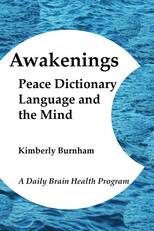
"Vrede" (peace), "Vreedsaamheid", "Sekerheid", "Doodskiet" (calm), "Gerus" (calm), "Gemoedsrus" (peace of mind), "Harmonie" (peace), "Kalm" (calm, tranquil), "Kalmeer" (calm), "Kalmte" (peace), "Pouse" (calm, tranquility), "Rus" (calm, tranquility), "Rustigheid" (peace) "Sekerheid", "Slag" (calm), "Stilstand (calm, tranquility), "Stilte" (peace), "Veiligheid" (peace), "Verneder" (calm), "Verslaan" (calm), "Vrede" (peace), "Vreedsaamheid" (peace), in Afrikaans (afr) close to Dutch spoken in South Africa, Botswana, Malawi, Namibia, Swaziland and Zambia.
"Goeiemôre Môre Vrede" (good morning peace).
Peace is a South African Town
"Vrede" is a South African town
60 km south of Standerton
216 km south-east of Johannesburg
founded on the farm Krynauwslust in 1863
proclaimed a town 16 years later
"Vrede" is peace in Afrikaans
one of 11 offical South African languages
the name stuck to the town
afrter the settlement of a dispute
over the proposed site of the town
Vredefort another South African town
15 km south-west of Parys
76 km north-north-east of Kroonstad
laid out on the farm Vischgat in 1876
proclaimed 5 years later
called Vredefort or Fort of Peace
"Vredenburg" formerly known
as "Procesfontein" or lawsuit fountain
165 km north-north-west of Cape Town
11 km north-north-east of Saldanha
given the name Town of Peace in 1875
"Vrede" is also peace in Dutch
[More Exercises]
|
|
|
|
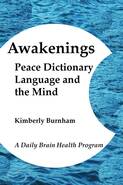
"Àlàáfíà" (peace, sound health or well-being), "Ìrèlè" (peace), "Itunu" (peace of mind), "Ifaiya" (alignment, as being aligned with one's destiny or ultimate purpose in life), "Ifaiya bale" (peace, the practice of peaceful volition and absolute non-violence) in Yoruba (yor), Yorùbá or Youruba spoken in Nigeria, Benin, Togo (West Africa).
From the Tongue to Ultimate Purpose in Yoruba (Nigeria)
We have a saying in Yoruba spoken in Nigeria
"In order to bring about peace,
first bring peace to your tongue"
There is peace "àlàáfíà" and "ìrèlè"
and other Yoruba words
explain the concept of peace
"idera" or comfort
"itunu" peace of mind
"itelorun" conveys contentment
"ifokanbale" as the mind rests in a place without worry
"àlàáfíà" translated peace as well as sound health or well-being
and a beautiful word "ifaiya bale" succinctly mulling over
the practice of peaceful volition and absolute non-violence
integrated into this gentle peaceful word
"ifaiya" is alignment as in being aligned with one's destiny
or ultimate purpose in life
as if only through peace
we each attain purpose in our life
More Exercises
Notice the relationship today between the things you say and your sense of accomplishment.
Peace Word of the Day
#peace #brain #Alzheimers #memory #travel #language #exercises #health
|
|
|
|
|
|
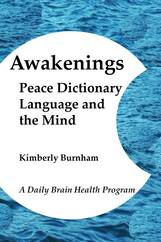
- !Ora—"ǂxãĩ-b" (peace, to be peaceful) or "!nó" or "!nō" (to be quiet, silent)—South Africa.
- Aari (aiw)— "Laqmi" (peace)—Ethiopia.
- Abaluhya—"Omulembe" (peace) —Kenya.
- Abar or Mungbam—"Bìmje" (peaceful) or "Bimbene" (peaceful) —Cameroon.
- Abau—"Liwak marowhway" (peace)—Papua New Guinea.
- Abaza—"Māmər"—Russia (Karachay-Cherkess Republic) and Turkey.
- Abellen, Ayta—"Tana" (peace)—Philippines.
- Abenaki (alg), Abnaki—"Olakamigenoka" (peace), "Okikiamgenoka", "Kamignokawôgan", "Wlakamigen" (peace)—Native American, Maine, USA, Montreal, Canada, North America.
- Abenaki Penobscot, Aln8ba8dwaw8gan (abe), or Eastern Abenaki—"Wlakamigen" (peace) or "Čik" (calm, quiet)—North America.
- Abkhaz or Abkhazian (abk)—"Aṭynčra" (peace) or "аҭынчра"—Caucasus and Georgia (Abkhaz Republic).
- Abui (abz)—"Pendamai" (peace), "Amon" (calm), "Moku" (calm), "Rama" (calm) or "Dame" (peace)—Indonesia (East Nusa Tenggara, Greater Alor, and Timor-Alor-Pantar).
- Aceh, Achinese (ace) or Acehnese—"Mayget" (peace) or "Damien"—Aceh, Sumatra, Indonesia.
- Achaemenid Elamite (elx)—"Gu-gu" (peace) or "Gugu" (peace)—Elamite Empire, Ancient Near East, Middle East.
- Achagua (aca) or Achawa, Ajagua, Achugua, and Xagua—"Sáictaque'e" (peace) or "Sáictacta" (peace)—Eastern Colombia.
- Aché (guq)—Krɨ̃ba rõma (peace), "Kra gatu", or "ɨ praru gatu" (calm (of the sea) —Paraguay.
- Achuar-shiwiar (acu)—Angkan pengker nintimratin (peace) —Peru.
- Adyghe (ady), Adygean, Adyghabze, адыгэбзэ, or Adygei—"Rупсэху" (peace) or "Rупсэф" or "мамырныгъ"—North-west Caucasus Russia.
- Afar—"Salaamata" (peace)—Ethiopia, Eritrea, Djibouti.
- Afrikaans—"Vrede" (peace)—South Africa.
- Aghul (agx), Агульско-русский словарь, Aghul-ch'al, Agiul Shui. Autonym. агъул, Aġul, агъул чӀал , Ağul ҫ̇al,—"Islahwel" / "ислахІвел" (peace), "Islakhivel" (peace), "Sakin" (calm), "Sekinwel" / "секинвел" (peace), "Sekinvel" (peace), "иджеф прил хороший" (good), "идже прил хороший" (good), "Idzhef" (good)—Russia.
- Aghul (Koshan dialect)—"Awadušas" or "авадушас" (peace) or "Avadushas" (peace) or "Idzhed" (good) or "Sakin" (calm)—Southern Dagestan, Russia and Azerbaijan.
- Aguaruna—"Ag'kan" (peace), "Epegtuniajum" (peace), "Mijámu" (calm)—Peru (Marañon River area)
- Agutaynen (agn)—"Kaoyan" (goodness; well-being; peace)—Philippines.
- Ainu—"Apunno" (peace)—Japan.
- Äiwoo (nfl)—"Väkolooli" (make peace), "Meloo" (peaceful) or "Wâmeloo" (make peace)—Reef-Santa Cruz Islands, Solomon Islands.
- Ajië, Bakla,Beki, Wai, and A’jie—"Ta" (peace)—New Caledonia, Oceania
- Ajja, Aja, or Ajagbe—"Fafá" (cold, peaceful, peace, shading), "Ŋcifafa" (peace), "Fɛɛ" (willingly, easily, peacefully),- Benin, a small country in Africa.
- Ajyininka Apurucayali—"Kamiitha"—Peru.
- Akan—"Asmomdwoe" (peace)—West Africa.
- Akawaio (ake)—Ereuta (peace) "Tʉusewankamai'" (peace), or Iꞌnɨꞌpanʉkʉ pɨꞌ teꞌsan (make peace)—Guyana (Mazaruni River), Venezuela (Bolivar State), Brazil (Roraima State).
- Akkadian—"Salmu" (peace)—Mesopotamia (extinct).
- Akoose (bss) —"Nsaŋ" (peace) or "Ne nsaŋ"—Cameroon
- Alabama—"Ittimokla" (peace), "Utimokla" or "Innaaɬiilka" (peace), "Oolakano" (to be at peace, be friendly, be peaceful)—Native American, North America.
- Alamblak (amp)—"Duka mmokfot" (peace, hope, forget, lack of worry, think crazy)—East Sepik, Papua New Guinea.
- Albanian—"Paqe" (peace), "Páqja", "Pake" —Albania, Kosovo.
- Alekano or Gahuku (gah)—"Hulu" (peace), "Zou" (peace), "Alémo zou live" (silence, make quiet, make peaceful), "Lipizeko" (peaceful, patient, calm), —Papua New Guinea (Eastern Highlands Province).
- Algonquin—"Wâki Ijiwebis-I" (peace) or Waki Qiwebis—North America (Canada Quebec).
- Alsatian (gsw)—"Fréda" (peace) or "Friede" (peace)—France (Alsace), Switzerland.
- Alune (alp) —"Mise" or "Mise kai lomai" (peace)—Indonesia.
- Amanab (amn) and Amanab (Naineri)—Afa sifakalig (peace)—Papua New Guinea (Sandaun Province).
- Ambonese Malay—"Bakubae" (peace or damai) or "Dame" (peace) in Ambon Island in the Maluku Islands of Indonesia.
- Amele (aey) or Amale, Huar, Jagahala, Haija—"Malol" (peace) or "Manin" (peace) "Tanaw-eʔ" (to make peace)—Madang, Papua New Guinea.
- Amharic (amh), Kuchumba, Amarinya, Amharinya, and Amarigna—"Salam" (peace)—Ethopia, Israel and Egypt.
- Ampeeli (Safeyoka dialect)—"Sɨmeho" (peace)—Papua New Guinea.
- Ampeeli (Wojokeso dialect)—"Sɨmeho" (peace)—Papua New Guinea.
- Ampeeli, Safeyoka, Angan, Ampele, Ambari—"Sɨmeho" (peace)—Papua New Guinea.
- Ancient Greek—"Eirini" (peace)—Mediterranean (extinct) and liturgical.
- Angave (aak) or Ankave—"Ayinɨ́ŋɨ́" (peaceful), "Maiwi" (peacefully, unconcerned, innocently, unaware, careless)—Papua New Guinea's Gulf Province.
- Anglo Saxon, Old English—"Friþ", "Frið" (peace)—England (extinct).
- Antillean Creole—"Lapé" (peace) or "La pé"—France (French Antilles) or Martinique.
- Arabic -- Arabia, Middle East -- Salaam, Salam
- Arabic —" صلاة من أجل السلام" (peace)—Middle East and Globally.
- Arabic—"Salaam" (peace)—North Africa, Mideast, Central Asia, and liturgical.
- Arabic, Gulf Arabic—"Salaam" (peace) —United Arab Emirates (Dubai, Abu Dhabi, Sharjah), Qatar, Kuwait, Bahrain, Saudi Arabia, Iraq and Oman.
- Aragonese—"Patz" (peace)—Spain.
- Aralle—"Kamasahkeang" (peace)—(Indonesian Tribal Language)
- Aramaic, Syriac, Assyrian—"Shlamaa" (peace)—Iraq, Iran, Syria, and liturgical.
- Aranda (are) or Langrev—"Urnere" (peace)—Lower Southern (Arunta) Australia.
- Aranés (oci) or Aranese—"Patz" (peace) or "La Patz"—Spain, Europe.
- Arapaho (arp) or Hinónoʼeitíít —"Neneenii3o'oneihnoo" (I am behaving well, peacefully), "Teneiitooneiht" (calm, quiet, virgin)—Native American
- Arbëresh (Arbyresh)—"Pakjy", "Paqe" (peace)—Southern Italy.
- Arifama-Miniafia—"Tufuw" (peace)—Papua New Guinea
- Armenian (Eastern variety)
- Armenian (hye) or Arménien, Hayeren—Khanhaghutyun" (peace), "Khaghaghoutyoun", "Khaghaghutiun", "Ashkharh" or "Xaġaġut'yun" / "խաղաղություն" (peace), "Xałałowt‘yown", "Han-gč̣im" (lie, rest) or "Han-gist" (tranquility), Աղոթք խաղաղության (prayer for peace)—Armenia, Iran, Turkey, Russia, and Azerbaijain.
- Armenian (Western)
- Armenian—"Khanhaghutyun" (peace), "Xaġaġut'yun" / խաղաղություն, "Xałałowt‘yown"—Armenia.
- Arrernte, Eastern (aer)—"Mwarre" (peacable, good)—Alice Springs, Australia.
- Assamese—"Sānti", "Shanti", "Ȟ̇ānti", "Nti" or "Xanti"—India, Bangladesh, and Bhutan
- Assyrian (aij, aii), Neo Assyrian or Neo-Aramaic—"Šulmu" (welfare, safety, peace, prosperity)—Iran, North Iraq, Syria, Turkey. Armenia, and Israel.
- Assyro-Babylonian—"šul-mu"—Ancient Semitic.language.
- Asturian or Bable (asf)—"Paz" (peace, peace of mind)—Spain: Princedom of Asturias and Portugal.
- Auhelawa—"Nuwadaumwali" (peace, calm heart, peaceful) or "Ebe"—Papua New Guinea.
- Avañe'ẽ Guarani or Guaraní Paraguayo—"Py’a guapy" (peace) or "Ɨvɨ-tuporeʔɨ̃" (calm)—Paraguay
- Avar—"Reqel" (peace)—Caucasus
- Avestan—"Axšti" (peace)—Iran (extinct)
- Ayautla Mazatec (vmy)—"Kjuaxiu" (peace)—Mexico, Mexican state of Oaxaca, in the town of San Bartolomé Ayautla.
- Aymara or Ajmara—"Hacaña" (peace) or Qasiki (free; peaceful; tranquil)—Peru, Bolivia, Paraguay, Argentina, Uruguay, Chile, and Brazil.
- Ayta Abellen—"Tana" (peace)—Philippines
- Azeri or Azerbaijani (azj) Quote— "Şöhratparastlik qurtaran yerdan da əmin amanliq başlaylr." (Peace begins just where ambition ends.)—Azerbaijan, Russian, Daghestan, Iran, Afghanistan, Iraq, Syria and Turkey.
- Azeri or Azerbaijani (azj) Quote— "Sülhü qoruyub saxlamaq onu qazanmaqdan daha asandır." (Better keep peace than make peace.)—Azerbaijan, Russian, Daghestan, Iran, Afghanistan, Iraq, Syria and Turkey.
- Azeri or Azerbaijani (azj)—"Sülh" (peace, armistice, truce, amicable, orderly), صولح , "Salh", "Solh" (peace, armistice, truce, amicable, orderly), "Barış", "Архајынлыг", "динҹлик", "дүнја", "сакитлик", "Cүлһ" or "Dünya", "Dinçlik" (peace), "Rahatlıq" (peace, calm, boon, quietude, cosiness, convenience, lull, quietness, quiescence, placidity, rest, quiet, comfort, serenity, repose, ease, facilitation, relief, amenity, facility, accommodation, improvement)—Azerbaijan, Russian, Daghestan, Iran, Afghanistan, Iraq, Syria and Turkey.
- Babylonian, a dialect of Akkadian—"šul-mu"—Ancient Semitic language.
- Balanese (ban) or Basa Bali—"Damé", "Shanti", "Swasti" or "Rahayu"—Bali.
- Balochi (bcc)—"Sala" (peace) and "Aman" (peace) or حیر/صلح or ایمنی or "Muhnt" (a share of stolen property restored to the owner as a peace offering)—Iran and Pakistan.
- Bambam—"Kamasannangam penaba" (peace)—Indonesian Tribal Language.
- Bambara—"Here", "Errébé" (peace)—Mali.
- Bangi (Bobangi)—"Nyiee" (peace)—Congo.
- Baoulé—"Ahoudjo hé" (peace) or "Dyra koa!" (keep calm)— Ivory Coast, Cote d'Ivoire, West Africa.
- Barakhinei—"Pû" (peace)—a Conlang.
- Bargam or Mugil (mlp)—"Tamaz" (peace, good time, offering, sacrifice)—Madang Province, Papua New Guinea.
- Bari (bfa)—"Fá'rana" (peace) or "Liòngit" (peace) or Yukan (peace, rest)—South Sudan. (Africa).
- Basaa—"Sàn" (peace), "Nsaŋ" (peace)—Cameroon.
- Bashkir—"Tınıslıķ" (peace)—Volga, Urals, Central Asia.
- Basque—"Baké" (peace)—Spain, France.
- Batak—"Pardamean" (peace)—Indonesia.
- Bavarian (Bayrisch)—"Fridn" (peace)—Bavaria (Germany).
- Belarusian (bel), Byelorussian, or беларуская—"Mir", "мір", "мир" (peace), "pakoj", "спакой", "spakój" (peace), "згода" / "zgoda" (peace)—Belarus.
- Belarusian—"Mir", "Pakoj" (peace)—Belarus.
- Bemba (bem or byi or bmy or bmb), Chibemba or IciBemba—"Mutende" (peace), "Mutenden" (peace), "Ukwikala mu" (peace), "Tondolo" (silently, calmly) —Northern Zambia, Zaïre, Congo-Kinshasha. Niger-Congo.
- Bemba—"Mutenden", "Ukwikala mu" (peace)—Zambia.
- Bena-bena or Benabena—"Fulu huseꞌna" (peace), "Fulunaꞌa" (peace), "Fulu hu'ehibe" (slow, unhurried, not in a rush, gentle, peaceful)—Papua New Guinea.
- Bengali or Bangla—"Sānti", "Sainta", "Shanti", "Shaan-ti" (peace), "Abirōdha" or "Abirodha" (harmony, peace, accord, agreement, amity, friendliness)—Bangladesh and India (West Bengal, Tripura and Barak Valley).
- Béti fang—Mvoay (peace) — Ivory Coast.
- Bhojpuri (bho)—"Shānti" (peace), "Sānti" (peace), "Sakoon" (peace)—India (Uttar Pradesh), Mauritius, Nepal.
- Bihari—"Śānti" শান্তি—Bangladesh and India.
- Biloxi (bil) and Ofo—Toke (calm) or "Tokerti" (calm, no breeze stirring)—United States (Mississippi Valley).
- Binisaya, Cebuano—"Kamingaw" (peace), "Pagdait" (peace)—Philippines.
- Bisaya—"Kalinaw" (peace)—Brunei.
- Bislama (bis) or Melanesian Pidgin English—"Natamata" (peace), "Pis" (peace, piece), "Temat" (peace)—Vanuatu, Melanasia.
- Blackfoot (bla) or Siksiká—"Innaaissttiiya" or "Innaihtsi'iyi"—Canada and United States.
- Bobo—"Makonakon" (peace)—Burkina Faso.
- Bokmål, Norwegian (nob) or Standard Written Norwegian—Fred (peace), "Stillhet" (peace, tranquility, calm), "Ro i sinnet" (peace), "Fredelig" (calm)—Norway.
- Boko—"Lumana", "Salama" (peace)—Benin, Nigeria.
- Bosnian—"Mir" (peace), "Spokoj" (peace)—Bosnia
- Brahui—"Âsûdaî" (peace)—Pakistan, Afghanistan, Iran
- Breton, Brezhoneg—"Peoc'h", "Pèc'h" (peace)— Bretagne, France.
- Bribri (bzd)—Se̱ne bë̀rë (peace) or Se̱rke bë̀rë (peace)—Costa Rica.
- Bugis—"Marennui mennang" (peace)—Indonesian Tribal Language.
- Bulgarian—"Mir" (peace), мир (mir), споко́йствие / spokójstvie (peace)—Bulgaria.
- Buli—"Goom-jigi" (peace)—Ghana
- Bulu (bjl)—"Mvo'e" (peace), "évovoé" (calm, tranquil), "Ngbwa" (peace, friendship alliance, friendliness, kindness)—Cameroon and Niger-Congo; Africa.
- Burmese—"Nyein chan yay" (peace), "Nyeinjanyei" (peace), "Ngrim:hkyam:re" (peace)—Myanmar
- Burushaski (bsk) or Burū́šaskī Hunza—"Aram" (peace), "Saláamn" (peace), "Sukóonny" (peace) or "Manókuradj" (peaceful, generous, gentle)—Northern Gilgit-Baltistan, Pakistan.
- Cadhinor—"Peos" —a Conlang of Almea.
- Caglăll— "Pasc" [Pash] (peace) or "Pasc" [paʃ] (peace)—Conlang by a Chilean programmer.
- Cajun French (Acadian, Kreyol Lwiziyen)—"Pé", "Lapé", "Trankil" (peaceful)—Louisiana (USA).
- Canis—"Joorahssommòhzje" / Йюρaςςåmmåж (peace)—Conlang.
- Capeverdian Creole—"Paz" (peace), Pas (peace)—Cape Verde Islands.
- Capeverdian Creole—"Paz" (peace), Pas (peace)—Cape Verde Islands.
- Caribe—"Sara'me" (peace) or "Panawa" (peace)—Venezuala, Suriname.
- Carolinian—"Gúnnammwey" (peace)—Micronesia.
- Casyeb nerwhip—“Peixahiac”, "Mir"—Asia.
- Catalán (cat), Catalão, Català, Catalan-Valencian-Balear—"Pau" (peace), "Vèncer" (calm), "Calma" (calm), "Assossegat" (peaceful, motionless and calm; placid, easy, easygoing, leisurely, placid , quiet, smooth, still, tranquil, unruffled, not hurried or forced) —Catalonia, the Valencian Region, the Balearic Islands, the Franja (Fringe of Aragon), Andorra, Roussillon and Alghero (Sardinia).
- Catanese or Catanès—"Paci" (peace)—Conlang (Adarian of Canalia).
- Cayuga—"Odriyohsrędaˀǫh" (peace) or "Ganig}h[yo" (peaceful)—Ontario, Canada.
- Cebuano—"Kalinaw", "Kahusayan" (peace)—Philippines (Central part).
- Central Atlas Tamazight—"Talwit" (peace)—North Africa.
- Central Tarahumara—"We kii'ri" (peace)—Mexico (Chihuahua)..
- Cerma—"Kufĩɛŋo" (peace), "Yaafɛ̃lle" (peace)—Burkina Faso.
- Chamorro (cha)—"Minaggen" (peace) or "Pås" (peace) or "Påsifiku" (Pacific, peaceful, peaceful state, peace) or "Åplåka" (make peace)—Guam and the Northern Mariana Islands.
- Champenois (Aube – Marne – Haute-Marne)—"Tocque mornicault" (peace), "Calme" or "Paix"—France and Belgium.
- Chechen—"Mashar" / "Машар", "Maşar" (peace)—Chechnya (Caucasus).
- Cherokee or Tsalagi—"Dohiyi" (peace) or "Nvwadóhiyada" (peace)—North America (Oklahoma).
- Cheyenne (chy)—"Nanomonsetôtse" or "He'kotâhestôtse"—USA (Montana, Oklahoma).
- Chicksaw (cic) -- "Nanna Ayya" (peace)-- Native American, North America (South Central Oklahoma)
- Chiluba or Luba (lbk)—"Ndowe" (peace)—Zaire or Dem. Rep. Congo.
- Chin or Zomi—"Nopsakna" (peace)—Myanmar and India.
- Chinese - Wu Chinese (wuu) y˦tɕiu˦ɦo˨ t‘a˨˩dialect (wuu-007) —"t‘a˨˩ bɦeŋ˩ ˨" (peace), tɕ‘yɛ˦˧ ko˦˧(make peace), "tɕaŋ˦˧dɦeŋ˩˩" (calm)—Jiangsu south of Changjiang River, east of Zhenjiang, on Chongming Island, mouth of the Changjiang, and north of the Changjiang in the area around Nantong, Haimen, Qidong, and Qingjiang; Zhejiang Province south to Quzhou, Jinhua, and Wenzhou. Also in United States.
- Chinese - Yue, Cantonese or Jyutping —"Peng on" 和平 or "Peng an" (peace), Wo ping / 和平 (peace)—Canton (Guangdong), Macau, and Hong Kong, China.
- Chiquihuitlán Mazate (maq)—"Cjuajeya"—Mexico.
- Choctaw - "Achukma" (peace) - North America.
- Choctaw—"Nuktanla", "Yukpa" (peaceable, peaceful), "Na yukpa" (joy, joyfulman, pleasure, rejoicing, peace), "Achukma" (peace, good, well)—Native American language.
- Chokwe or Cokwe - Ukulungunga (peace) - Angola, Congo.
- Ch'ol or Tumbalá (cai)—"Ñʌch'chocoya" (peace), "ñʌch'tilels" (peace) or "ñʌch'tʌlel lac pusic'al" (peace)—Chiapas (Mexico).
- Chontal or Tequistlatec—"Aylobaha Gafuleya—Mexico.
- Chuang (Zhuang) - "Bingzan" (peace), "Bingz" (level, even, flat, peace) - Guangxi, China.
- Chukchee—"Cumav" (peace) / "Цумав", "Унтэм" / "Untem", or "Amaravkėgyrgyn" / "Aмаравкэвагыргын"—Siberia.
- Chukchi (Chukot) - "Cumav", "Цумав", "Untem", "Amaravkėgyrgyn" (peace) - Siberia.
- Chuuk - "Kunammwey" (peace) - Truk.
- Chuukese (chk)—"Kinamwe" (peace)—Micronesia.
- Chuvash - "Tănăş", "тӑнӑҫ" (peace), тӑнӑҫлӑх (tănăşlăh), or тӗнче or "мир" and "mir" - Russia.
- Cimbrian (Tzimbro, Tàuc') - "Bride", "Vride" (peace) - Trentino, Veneto (Italy).
- Comanche - Tsumukikiatu (peace) -North America.
- Comoran—"Amani" or "Salama"—Comoros, an archipelago in the Indian Ocean.
- Coptic - "Hirīnī" (peace) - Egypt (extinct) and liturgical
- Cornish - "Cres" (peace) - Cornwall (extinct)
- Corsican (North)—"Pace" (peace)—Corsica (France).
- Corsican (South)—"Paci" (peace)—Corsica (France).
- Corsican—"Pace" or "Paci"—France (Corsica), Italy (Sardiania).
- Cree, Alberta Cree—"Peyahtikeyimowin" (peace, after the war)—Alberta, Canada.
- Cree—Wîtaskîwin" (peace, truce, alliance) or "Papayatik" (peace)—Native American language, North America.
- Creole, Port Moresby Creole—"Gutpela Taim" (peace)—Papua New Guinea.
- Cretan or Crétois—"Eiphnh" (peace), ειρήνη or "Irini"—Crete.
- Crimean Tatar (crh)—"Sulh" (peace), "Barışıq" (peace) or "Tınçlıq" (peace)—Crimea.
- Crio or Crioulo Creole or Portuguese Creole—"Pis" (peace)—Brazil.
- Croate or Croatian—"Mir" (peace rest repose) or "Svijet" (peace) or "Počinak" or "Sklad" or "Sloga"—Croatia, Bosnie-Herzégovine.
- Cuêzi, a Conlang—"Pēu" (peace, "Pu" (peace)—Conlang.
- Cyrillic Russian—"мир" / "Mir" (peace), "спокојство", "спокој" (peace of mind), "миръ", "mirŭ" (peace)—Russia and Eastern Europe and Asia.
- Czech, Čeština or Česky—"Pokoji" (peace), "Klid" (peace), "Mír" (peace)—Czech Republic.
- Dagara or Dàgáárè (dga)—"Maaro" (peace) or "'Maaro" (peace)—Ghana, Burkina Faso, Niger-Congo; Africa.
- Dakota (dak)—"Wóda khota" (peace time, time of truce) or "Míʾogdasʾisʾe" (calm and shining)—North America.
- Danish—"Fred" (peace),"Friður" (peace), "Vrede" (angry)—Denmark and Greenland.
- Dari Persian, Afgan or Farsi—"Sulh" صلح "Ssulh" (peace), "Soola" (peace), "Sulha" (peace), صوله "Sola" (peace), "Sazi" (peacemaking) —Afghanistan, Iran, and Pakistan.
- Darja—"Esslama" (peace)—Algeria.
- Dholuo—"Kue" (peace), “Kuo” (peace)— Kenya, Uganda, Tanzania.
- Dinka—"Ador" (peace), “Dɔɔr” (peace)—Sudan.
- Divehi—"Sulha" (peace)— Maldives.
- Dogrib (dgr) or Na-dene—"Ts'èwhı̨ ts'ı̨ı̨wǫǫ" (peace), "Nakenahohtsî" (make peace)—Canada: Northwest Territories.
- Dolenjsko —"Paks" (peace)—Conlang.
- Doolomitian —"Pese" (peace)—Con.
- Doriathrin—"Ēd" (feminine name, rest)—Constructed language conceived by Tolkien.
- Drow—"Gre'as'anto" (peace)—Con.
- Dschang or Yemba—"Mbw´né" (peace) —Cameroon.
- Duala - "Musango" (peace) - Cameroon.
- Dungan —"хәпин (həpin)" (peace)—China.
- Dutch (Flemish)—"Vrede" (peace), "Rust" (peace), "Peis" (peace, archaic), "vrede met zichzelf" (peace of mind) —Belgium.
- Dutch—"Vrede" (peace)", "Rust" (peace), "Peis" (peace, archaic), "Vrede met zichzelf" (peace of mind)—Netherlands, Belgium.
- Dutch—"Vrede" (peace), "Rust" (peace), "Peis" (peace, archaic), "vrede met zichzelf" (peace of mind) —Netherlands, Belgium.
- Dzongkha—"Gzhi-bde" (peace)—Bhutan.
- Eastern Bolivian Guarani—"Yerovia" (peace) —Eastern Bolivia.
- Eastern Bolivian Guarani—"Yerovia" (peace)—Eastern Bolivia.
- Efik —"Emem" (peace)—Nigeria.
- Egyptian—"Hetep" (peace), "Em hotep nefer weret" (very great peace, hello)—Egypt.
- Egyptian—"Hetep" (peace)—Egypt.
- Ekari (ekg), Mee, Ekagi, Kapauku—"Muka-Muka" (peace), "Mukamuka tai"( to be satisfied, to be happy or content, to make peace), "Kojaa" (slow, quiet, peaceful) —Indonesia.
- Ekari (ekg), Mee, Ekagi, Kapauku—"Muka-Muka" (peace), "Mukamuka tai"( to be satisfied, to be happy or content, to make peace), "Kojaa" (slow, quiet, peaceful) —Indonesia.
- Elfdalian or Övdalian—"Frið" (peace)—Älvdalen Municipality (Övdaln) in Northern Dalarna in central Sweden.
- Elfdalian or Övdalian—"Frið" (peace)—Älvdalen Municipality (Övdaln) in Northern Dalarna in central Sweden.
- Emakhuwa—"Murettele" (peace), "Mwiwanana" (peace), "Amaani" (peace)—Mozambique.
- Emakhuwa—"Murettele" (peace), "Mwiwanana" (peace), "Amaani" (peace)—Mozambique.
- Emberá - Northern Emberá or Embera del Norte—"Nekai" (peace), "Necai b̶ead̶ida", "Kĩrãipa" (peace), or "Paz" (peace)—Colombia, Panama.
- Emberá Mʌ̃a—"Necai" (peace)—Colombia.
- English - "Peace" (peace) - UK, Ireland, North America, Australia, New Zealand, Sub-Saharan Africa, Caribbean, etc.
- English—"Peace" (peace) —UK, Ireland, North America, Australia, New Zealand, Sub-Saharan Africa, Caribbean, etc.
- Eskimo—"Erkigsnek" (peace)—Native American (Greenland).
- Eskimo—"Erkigsnek" (peace)—Native American (Greenland).
- Esperanto—"Pace" (peace)—Constructed.
- Esperanto—"Pace" (peace)—Constructed.
- Estonian—"Rahu" (peace)—Estonia.
- Estonian—"Rahu" (peace)—Estonia.
- Ethiopian—”Selem”—Ethiopia.
- Etruscan (ett)—"Pas" (peace) or "Pas fenvs a" (peace we bring to)—Italy (extinct).
- Éwé, Évé, Gen, and Mina—"Ŋutifafa" (peace) or "Fáfá"—West Africa.
- Ewondo—"Foè" (peace)— Cameroon.
- Extremaduran—"Pas" (peace)—Western Spain.
- Faeroese, Faroean, Faroese—"Fridur" (peace), "Friður" (peace)—Faroe Islands and Denmark.
- Fanagolo—"Kutula" (peace)—South Africa.
- Fang —"Mvoghé " (peace)— Gabon.
- Farsi, Persian—" ﺢﻟﺻ / Sohl" (peace), “Ashtee” حلص “Sohl”—Iran.
- Ferengi —"Kin" (peace)—Conlang.
- Fijian—"Vakaçegu" (peace) —Fiji.
- Fijian—"Vakaçegu" (peace)—Fiji.
- Finnish—"Rauha" (peace), “Hiljaisuus”, “Mielenrauha” (peace of mind), “Rauhanrukous”—Finland, Sweden, Russia.
- Flemish—"Påye" (peace), "Vreij" (peace), "Rust" (peace) or "Vrede" (peace)—Belgium.
- Flemish—"Påye" (peace), "Vreij" (peace), "Rust" (peace) or "Vrede" (peace)—Belgium.
- Fon—"Fifâ" (peace), “Fífá” —Benin
- Franco-Provençal —Pas (peace), Patz—France.
- Franco-Provençal—"Pas" (peace)—France.
- French—"Paix" (peace), Tranquillité (peace of Mind)—France, Belgium, Canada, Caribbean, West Africa, Polynesia, etc.
- French, Old—"Pais" (peace)—France.
- Friesch—"Fred" (peace), "Fretha", "Frethe", "Fretho", "Freda", "Grid" (peace)—Germany, Netherlands.
- Frisian, Frysk (fry), Friesian sherland, Freese, Friesch—"Frede" (peace) or "Fred" (peace), "Frede fan 'e geast" (peace of mind), "Kalm) (calm), "Ienriedigens" (harmony, unanimity), "Fredich", "Freedsum" (peaceful), "freedsum" (peaceloving)—Frisian Islands in the North Sea, Germany, Netherlands
- Frisian, Northern (frr), a language of Germany, North Frisian dialects are grouped into two main divisions: mainland and insular. Insular dialects are Sylt Frisian (Söl'ring), Föhr-Amrum Frisian (Fering/Öömrang), Heligolandic Frisian (Halunder).—"word" (peace)—Germany.
- Frisian, Western Frisian, Frysk, a language of Germany—"Frede" (peace), "Frederjochter" (Justice of the Peace), "Nobelpriis foar de Frede" (Nobel Peace Prize), "Fredich", "Freedsum", "Stil" (peaceful), "Rêst" (peacefulness)—Germany, Netherlands.
- Friulian (Frulan)—"Pâs" (peace), “Pac” (peace)—Friuli (Italy).
- Fula (Falani)—"Jam" (peace)—Nigeria, Guinea, Mali, West Africa.
- Fulfulde - Borgu Fulfulde (fue) or Borgu—"Jam"—Burkina Faso, Benin, Nigeria, Central-Eastern Nigerspoken in Cameroon. Chad. Nigeria. Sudan.
- Fulfulde - Burkina Fulfulde, Burkina, Western Niger (four dialects: Jelgoore, Yaagaare, Gurmaare and Moosiire)—"Jam" (peace)—Burkina Faso and Western Niger.
- Fulfulde (Pulaar/Pular/Fulani) —Jam (peace)—West Africa.
- Fulfulde -Maasina Fulfulde (ffm) or Maasinankoore Fulfulde or Maasina—"Jam"—Mali, Niger, Congo.
- Fulfulde -Pulaar Fulfulde or Pulaar—"Jam" (peace)—Burkina Faso, Nigeria, Central-Eastern Niger, Cameroon, Chad, and the Sudan.
- Fulfulde—"Jam", Jojja (reconcile, adjust), "Jojjiiji (peace, reconciliations, harmony), "Jojjindidira" (make peace between, meidate), or "Hoolnaare (safety, peace, state of peacefulness, confidence)—Mali.
- Ga—"Hejole " (peace)—Conlang.
- Gaelic Scottish, Scots Gaelic or Gàidhlig (gla)—"Sìth" (peace) or "Saucht" (reconciled, at peace)—Scotland.
- Gaelic Scottish, Scots Gaelic or Gàidhlig (gla)—"Sìth" (peace) or "Saucht" (reconciled, at ease, in peace, tranquility)—Scotland.
- Gaelic-Irish —"Siochain" (peace), “Sith” (peace)—Ireland.
- Gafuleya Chontal—"Aylobaha" (peace)—Mexico.
- Galician (Gallegan)—"Paz" (peace)—Spain, Portugal.
- Ganda—"Mirembe" (peace) —Niger, Congo.
- Garifuna—"Darangilaü" (peace)—Honduras, Belize.
- Gascon —"Patz" (peace)—Conlang.
- Ge'ez—"Salam" (peace) —Ethiopia, Eritrea (liturgical).
- Gen/Éwé/Mina—Dutifafa (peace) —West Africa.
- Georgian—"Mšvidoba" (peace) —Georgia.
- Georgian—“სიმშვიდე / Simšvide”, “მშვიდობა / mšvidoba”—Georgia.
- German Low German—“Freden”, “Freed”, “Fräden”, “Frääd” (peace) —Germany
- German—"Friede", "Frieden" (peace), “Ruhe” “Scheinfriede” (phoney, hollow)—Germany, Austria, Switzerland, Liechtenstein, Italy, Belgium.
- Giha—"Amahoro" (peace) -Western Tanzania.
- Gikuyu—“Thayu” (peace), “Ũhoro” (peace), “Horo” (peace)—Kenya.
- Glagolitic Script—ⰿⰹⱃⱏ / Mirŭ) —Eastern Europe.
- Gnomish—"Gwilm" (cessation, peace, peace, quiet, rest, quiet)—Constructed language conceived by Tolkien.
- Gnomish—"Gwilm" (cessation, peace, peace, quiet, rest, quiet)—Constructed language conceived by Tolkien.
- Gothic—"Gawairþi" (peace), “Friþu” (peace)—Central Europe (extinct).
- Greek, Ancient—εἰρήνη (eiréne)—Ancient Greece
- Greek, Modern—"Iríni / ειρήνη / Eirēnē” (peace), “Irene” (peace), “Eiphnh” (peace)—Greece, Cyprus.
- Greek: ησυχία (el) f (isychía), γαλήνη (el) f (galíni), ηρεμία (el) f (iremía), ειρήνη (el) f (eiríni)
- Greenlandic or Kalaallisut—Irqigsiniq, Er?igsine? (peace) eqqissineq, “Eqqisaqatigiineq”—Greenland.
- Griko—"Filìa" (peace) —Puglia (Italy).
- Guadeloupe Creole / Martinique Creole—"Pé" (peace) “Lapé “—Caribbean.
- Guadeloupean Creole French (gcf)—"Pe" or "Lapé" (peace) or "Nofrap" (calm), "Ou pé komansé dékòlè" (you can start calm or you can calm down now)—Guadeloupe.
- Guarani—Aprvé, Ñerane'i, Py'aguapy, “Moñera'ÿ” (peace)—Bolivia, Paraguay, Brazil.
- Guiana Creole (Kreyol) —"Lapè" (peace) —Caribbean.
- Gujarati—"Shanti" (peace), "Śānti", "Shāntatā" (peace, calm), શાંતિ—India, Pakistan.
- Gullah (Geechee) —"Peace" (peace)—Georgia / South Carolina Sea Islands (USA).
- Guyanian creole—“La pé”—Guyana
- Gwich'in (gwi)—"Tsinehdan" (peace)—Alaska.
- Haida—Dláaya (is to be peaceful and calm)—North America (Canada: British Columbia; US: Alaska)
- Haitian Creole (Kreyol) —"Lapè" (peace) —Caribbean.
- Haka—"Remnak" (peace) dai zirziar in um caan; e.g. A great calm followed the storm = Thlichia kha dai zirziar in a ummi caan nih a hun zulh (calm), a dai; e.g. A calm night = A daimi zan—Myanmar
- Hakka—和平 (fò-phìn)—China.
- Halaka—Pegdub--
- Hangaza—"Amahoro" (peace)—Tanzania.
- Hausa (hua)—"Lafiya" (peace), Amana (peace), "Zaman lafiya" (peace), "Kwanciyar hankali" (peace), "Hakkure" (peace), "Lùmana" (peace), "Lùmaanàà" (peace), "Salamàà" (peace) or "Sálámȁ" (peace)—Nigeria, Benin, Burkina Faso, Cameroon, Ghana, Niger, Nigeria, Sudan and Togo.
- Hausa—"Lùmaanàà", "Amana", "Lafiya", "Lùmana", "Salamàà", "Natsuwa" (peace) —Nigeria.
- Hawaiian—"Maluhia" (peace), "Sipala" (peace), Malu (peace), “La’i” (peace)—Hawaii.
- Hebrew—"Shalom" (peace), שלווה \ שַׁלְוָה שלמא , Š(ə)lāmāʾ—Israel and liturgical.
- Herero or Otjiherero—"Ohange" (peace)—Southern Africa.
- Hiligaynon (Ilongo)—"Paghidait" (peace)—Philippines.
- Hindi—"Santi" (peace), “Shantih”, शांति “Śānti”, “Aman” (peace)—India, Nepal, Uganda, Suriname.
- Hiri Motu—"Taim billong sikan" (peace) —Papua New Guinea.
- Hmong—"Kev sib haum xeeb" (peace)—China, Vietnam, Laos, Thailand.
- Hmong, Green or Blue Miao dialect—"Thaaj yeeb" (peace)—China, Vietnam, Laos, Thailand.
- Hmong, White Hmong—"Thaj yeeb", "Kev sib haum zeeb" (peace)—China, Vietnam, Laos, Thailand.
- Hobyót, Hewbyót, Hobi, or Kalam Rif Weyheybyot—"ʔáfyət" (peace and good health)—Southern Arabia.
- Hokkien—“Taipeng”—China.
- Hopi—Sipala (peace), “Shinumu” (peaceful), “Paasikwa” (peace)—North America
- Huautla Mazatec (mau)—"Xi³ nchˀan¹ tjin"—Mexico.
- Hula—Paghidaet--
- Hungarian—"Béke" (peace), “Békesség”, “Nyugalom”—Hungary, Romania, Slovakia.
- Icelandic—"Friður" (peace), “Friðartími”, “Grið” (peace)—Iceland
- Icelandic, Old—Fridr—Iceland
- Ido—"Paco" (peace) —Nigeria
- Igbo (Ibo)—" Ùdo" (peace), “Ndokwa” (peace)—Nigeria.
- Igbo or Ogam—"Udo" (peace) or "Udho" (peace) or "Ndokwa" (peace)—Nigeria.
- Ikinyarwanda—"Amahoro" (peace), "Salama" (peace)—Rwanda, Democratic Republic of Congo and Uganda.
- Ila—"Chibanda" (peace) —Zambia.
- Ilocano—"Kappia" (peace)—Philippines.
- Ilongot—“Paghidait”
- Inabaknon (abx)—"Kamurayaw" (peace)—Philippines.
- Indonesian (Bahasa) —"Kedamaian" (peace), “Ketenangan” (peace), “Damai” (peace), “Perdamaian” (peace)—Indonesia.
- Ingush—"Mashar" (peace)—Ingutia (Caucasus).
- Interlingua—"Pace" (peace) —Constructed
- Inuit, Inuktitut—“Tutkium” or “Tutkiun” (peace), “Anusdake” (peace), “Eqkisgineq”, "Saimmasimaniq" (peace), ᑐᑦᑭᐳᓐ (tutkiun)—Native American.
- Inupiak—“Kiñoiñak” / ᑭᖑᐃᖓᒃ, "Tutqiun" (peace) —Native American, North America.
- Irish, Irish Gaelic—"Síocháin" (peace), “Síth”, “Suaimhneas” (peace of mind)—Ireland
- Ishkashmi—"Salam" (peace) —Central Asia.
- IsiZulu /isiNdebele—Ukuthula (peace)—South Africa.
- Ismaîn—“Pe” (peace)--
- Italian—"Pace" (peace) —Italy, Switzerland.
- Itelmen, Itelmenic —ткарвэл (tkarvel)--
- Ivatan—Saychid (peace) —Philippines.
- Jalapa De Díaz Mazatec (maj)—"Kju̱a̱jyu" (peace)—Mexico.
- Jamaican Creole (Rasta, Jam Dung) —"Satta" (peace) —Caribbean.
- Jamaican Creole English, Jamiekan, Jamaican Creole, Rasta or Jam Dung—"Sata" (to tell an individual or group to relax; be at at peace or state of rest), "Satta" (peace) or ":Liv gud wid piipl" (peace)—Jamaica.
- Japanese—"Heiwa" (peace), 平和 (へいわ, Heiwa”, 平静 (ja) (へいせい, heisei), 平安 (ja) (へいあん, heian)—Japan
- Jarawara (jaa)—"Bara" (live in peace)—Brazil.
- Jatibonicu Taino—"Amikekia" (peace) —Puerto Rico.
- Jatvingian or Sudovian—"Sanpak", "Pak" (peace) —Baltic (extinct).
- Javanese—"Rukun" (peace), “Tentram” (peace), “Rahayuning gesang”—Indonesia.
- Jawa-Suriname— "Tentrem" (peace)—Indonesian Tribal Language.
- Jerma (Niger)—“Baani”
- Joola (Senegal)—“Ku sumay”
- Judeo-Arabic—Shlama—Middle East, North Africa
- Judeo-Italian, Italkian or Bagitto—"Pača" (peace)—Italy.
- Judeo-Persian (Bukharic)—"Salum"—Mideast, Central Asia.
- Kabardian—"Māmərəġă" (мамырыгъэ) (peace) or "Māmər" (мамыр) (peaceful)—Northwest Caucasian and the Eurasia Russia's Kabardino-Balkaria.
- Kabyle or Kabylian—"Lahna" (peace), “Laafya”, “Asrad”, “Afra” (tranquility)—Algeria.
- Kala Lagaw Ya—"Paaudh" (peace), "Paaudha" (peace)—Western and Central Torres Strait Islands between Papua New Guinea and the mainland of Australian.
- Kannada—"Shaamti" (peace), ಶಾಂತಿ / Śānti—India.
- Kanuri—"Kelafia" (peace), Hêr (peace) —Niger, Nigeria.
- Karelian—"Rauhu", "Vienosti" (peace) —Russia, Finland.
- Karen—“Emo tashi”—Burma
- Karo—"Kemalemen ate" (peace)—Indonesian Tribal Language.
- Kashmiri—Amn" (peace) —Kashmir (India, Pakistan).
- Kashubian—Mir--
- Kazakh—Beybitšilik", Бейбичилик [bEjbetSilik] (peace), “Beybiychiyliyk”, “Mir”, “Tınıştıq”—Kazakhstan.
- Kekchi—"Tuktuquil usilal" (peace) —Guatemala, Belize
- Khmer, Kampuchea —"Santiphap" (peace), “Santekphep”, “Sontépheab”, សន្តិភាព (san tepheap), ក្រសាន / Krɑsaan, ធ្យាន / Tyien (peace of mind), សន្តិភាព / Sondtipeeup, សន្តិកាល Sɑnteʔ kaal, “Soksang”—Cambodia.
- Kiche—"Utzil" (peace, blessing, goodness)—Guatemala (Momostenango (as well as its dependent Aldeas of Canquixaja, Nimsitu, and Panca) and Totonicapan (and its dependent Aldeas of Nimasak and Cerro de Oro).
- Kikongo—"Kikœndi" (peace), "Luvuvamu" (peace), Ngemba —Congo, Zaire, Angola.
- Kikuyu (Gikuyu)—"Thayu" (peace), “Thayũ”, “Ũhoro”—Kenya.
- Kildi Sami—"Ajjv" (peace), мырр / “Myrr” —Russian Arctic.
- Kim Mun (mji) or Kjimmun—"Kwan ʔpjaŋ" 和平 (peace)—Yanyuan, Qiongzhong County, Hainan, China.
- Kimbundu—“Kutululuka” (peace) —Angola.
- Kinyarwanda/Kirundi—"Amahoro" (peace), "Nimuhóre"—Rwanda, Democratic Republic of Congo, Uganda.
- Kirghiz (Kyrgyz)—"Tinçtik" (peace)—Kirghizstan, China
- Kirundi (Burundi)—"Amahoro" (peace)—Burundi and Rwanda
- Kiswahili—Amani (peace)—Tanzania, Kenya, Congo.
- Klingon—“Roj” (peace)—Conlang of Star Trek.
- Koasati (Coushatta) —"Ilifayka" (peace) —North America.
- Kölsch—"Fridde" (peace)—Germany.
- Komi—"Mir̃", "Söglasön olöm", "Yри" or "Мир" (peace) —Russian Arctic.
- Kongo—“Kikœndi” (peace), “Ngemba”—Congo.
- Konkani—“Soukāsāi” or “Shanti” शंति —India.
- Korean—" P'yŏng-hwa " (peace), 평화를 위한 기도, 평안 / Pyeong-an, 平安 , Pyeongjeong (peace of mind)—Korea
- Koryak—“Aмкавың”, “Amkavyng”, “мир”, “Mir”--
- Kwamera (tnk)—"Pis" (peaceful, calm), "Nəmərinuyen" (peace) or "əmərinu" (peace)—Tanna, Vanuatu.
- Kwamera (tnk)—"Pis" (peaceful, calm), "Nəmərinuyen" (peace), "Nəmərinuien" or "əmərinu" (peace)—Tanna, Vanuatu.
- Laizo/Falam—"ramnak; daihnak, " (peace), "a reh mi; dai khip khep mi; a thing mi, a ngawi mi" (calm)—Myanmar and India.
- Lakalai or Nakanai—"Telela" (peace)—New Britain, Papua New Guinea.
- Lango (lij), Langi, Leb Lango, Leb Lano, Leb Laŋo, Leb-Lango, Lëblaŋo, Lwo, Lwoo—"Kuc" (peace) "Kuch" (to be quiet, to be at peace), "Kweo" (to make cool, to pacify), "Ayom" (soft, peaceful), "Morembe Ayom" (good greeting), "Buti Ayom" (sleep softly, well)—a Southern Luo dialect spoken by the Lango people of Uganda and the Sudan.
- Lenakel—"Pis" (peaceful, calm), "Nəməlinuan" (peace) or "əməlinu" (peace)—Tanna, Vanuatu.
- Louisiana Creole French (lou) (Bayou Teche)—"Pe" (peace)—Louisiana.
- Louisiana Creole French (lou) (Côté Allemand Creole)—"Lape" (peace)—Louisiana.
- Louisiana Creole French (lou) (Pointe Coupee Parish)—"Pe" (peace), "Lape" (peace)—Louisiana.
- Louisiana Creole French (lou) (Saint Tammany)—"Pè" (peace). "Trankil" (peaceful)—Louisiana.
- Louisiana Creole French (lou)—"Pe" (peace), "Lape" (peace), "Pè" (peace), "Trankil" (peaceful)—Louisiana.
- Lugbara or Mugandat—"Asindriza" (peace (literally beautiful heart or nice heart), "Angu ndriza" (peace), "Asianzu" (peace, mercy)—Uganda and in the adjoining area of the Democratic Republic of the Congo.
- Màaya Yucateco (yua)—"Ets'a'an óolal" (peace, tranquility), "Jéedzel óolal" (peace), "Kinsik" (calm)—Mexico and Belize.
- Màaya Yucateco (yua)—"Ets'a'an óolal" (peace, tranquility), "Jéedzel óolal" (peace), "Kinsik" (calm)—Mexico and Belize.
- Malay or Bahasa Malaysia—"Keamanan" (peace), "Daman" (peace)—Malaysia and Indonesia.
- Malgache, Malagasy, Maalgasy, Masikoro—"Adana" (peace, slow, peaceful, tranquil; grave and prudent in action), "Fandriampahalemana" (peace), "Salama" (peace), "Mahasalama" or "Fahasambarana" (peace, tranquillity, blessedness), or "Fiadanam-po" (peace)—Madagascar East Africa.
- Mandarin Chinese—"Hé píng" / 和平 (peace)—China.
- Masai or Maasi—"Eseriani" (peace)—Kenya and Tanzania.
- Matu—" rhoeprhoi nah, ngaimongnah" (peace)dingcicak, dingrak, hlangihsap tue. (calm)—Myanmar and India.
- Mažtane—"Pén"—a Conlang of Verdurian.
- Mele, Mele-Fila (mxe)—"word" (peace)—Atara mere, Vanuatu.
- Middle Primitive Elvish—"Ezdē" (root. rest, rest, repose, to rest, repose) in —Constructed language conceived by Tolkien.
- Middle Telerin—"Erde" (feminine name, rest)—Constructed language conceived by Tolkien.
- Na’vi (Avatar)—"Fpomtokx" (peace) or "Aylrrtok" (peace), "Fpom" (peace)—a Constructed Language or Conlang of the people of Pandora.
- Netwar or Lenakel—"Pis" (peace)—Western Tanna, Vanuatu.
- Nez Perce (nez / nai)—"'Eyewi" or "‘Eʔyewi" (peace)—Native American, United States.
- Nhengatu (yrl)—"Tecócatú" (peace)—Indigenous language of Brazil.
- Noldorin—"Sîdh" (peace), "Sēde" (peace), "Ídh" (rest)—Constructed language conceived by Tolkien.
- North Tanna (tnn)—"Pis" (peaceful, calm), "Nəməlinuən" (peace) or "əməlinu" (peace)—Tanna, Vanuatu.
- Norwegian Bokmål (nob) or Standard Written Norwegian—Fred (peace), "Stillhet" (peace, tranquility, calm), "Ro i sinnet" (peace), "Fredelig" (calm)—Norway.
- Nyanja, Chewa, Chichewa, or Chinyanja—"M’tendere", "Mtendere" (peace), "Tendele" (peace), "Lonjezana" (be at peace) or "Bata" (calm)—Southern African, Tanzania, and Malawi.
- Old Noldorin—"Ide" (feminine name. rest) —Constructed language conceived by Tolkien.
- Ossriandric—"Eord" (feminine name. rest)—Constructed language conceived by Tolkien.
- Patois de la forêt de Clairvaux—"Pai" (peace)—France.
- Plains Cree or Cree (Saulteau First Nation)—"Āstēkēsikāw" (the day is calm after the storm), "Ayiwāstin" (it is a calm day, the wind has died down), "Kāmwātapiwin" (The act of sitting quietly and not moving)—North America.
- Primitive Elvish—"Sed" (root. rest, rest, repose)—Constructed language conceived by Tolkien.
- Qenya—"Ruin" (peace)—Constructed language conceived by Tolkien.
- Qenya—"Ruin" (peace)—Constructed language conceived by Tolkien.
- Quechua - Bolivian Aymara Quechua—"Hacaña" (peace), "Sumañkañataki" (peace), "Suma" (delicious, good, savoury, tasty)—Bolivia.
- Rakash—"Rawr" (peace)—Conlang.
- Saint Lucian Creole (Kweýol̀) French (acf)—"Lapé" (peace, quiet, calm, stillness, silence) or "Milyé" (peace, truce, cessation of fighting) or "Wipo" (rest) or "Bay wipo" (to leave in peace, to leave alone)—Carribean.
- San Jerónimo Tecóatl Mazatec (maa), Tecóatl Mazatec, Eloxochitlán Mazatec, Northern Highland Mazatec—"'Nchán" (peace)—San Jerónimo, Mexico.
- Serbian—"Bèzbednȏst" [bězbednôːst] (peace, security) or безбедност or "Mir" (peace) or "Spokoj" (peace)—Serbia.
- Shona, Chishon, Chishona or Manyika—"Runyararo"—Zimbabwe.
- Sindarin—"Sîdh" (peace), "îdh" (peace, tranquillity, rest, repose), "Ēd" (rest), "Dor" (rest), "Send" (rest), "Senn" (rest), or "Post" (pause, halt, rest, respite)—Constructed language conceived by Tolkien.
- Sioux—"Wo’okeyeh" (peace)—Native American, North America.
- Somali—"Nabáda" (peace), "Nabad" (peace), “Ma nahad baa” (is there peace), “Nabadda maanka” (peace of mind)—Somalia, Djibouti, Ethiopia.
- South West Tanna (nwi)—"Pis" (peaceful, calm), "Nəmərinuyen" (peace) or "əmərinu" (peace)—Tanna, Vanuatu.
- Ta'agra, Tamriel, Elsweyr, Khajiit, The Elder Scrolls—"Santi" (peace), "Santi'i" (peaceful)—Conlang (Bethesda Softworks).
- Tarahumara (tac)—"We kii'ri" (peace)—Mexico (Chihuahua).
- Tedim—"daih na lungnopna, lungmuanna, kilemna" (peace), "dai, huihpi guahpi dai, theng, kamdeuh" (calm)—Myanmar and India.
- Telerin—"Erde" (peace, rest)—Constructed language conceived by Tolkien.
- Toraja-Sa'dan (sda)—"Kamarampasan" (peace)—highland region of Southern Sulawesi in Indonesia.
- Upper Sorbian or Wendish —"Pokój" (peace, calmness)—Germany.
- Vaha—"Pis" (peaceful, calm), "Nəməlinuyen" (peace) or "əməlinu" (peace)—Tanna, Vanuatu.
- Verdurian—"Pé"—a Conlang of Almea.
- Wantoat—"Iniwikake" (tell someone something in an attempt to make peace), "Gekäke" (be calm)—Papua New Guinea.
- Whitesands (tnp)—"Pis" (peaceful, calm), "Nəməlinuyen" (peace, calm), "Nəməlinuiən" (peace), or "əməlinu" (peaceful, calm)—Tanna, Vanuatu.
- Wintu—"ʔelew-be-m λikuṕurmina" (peace, literally no fighting each other now)—Native American, United States (Northern California).
- Wu Chinese or Shanghainese—"Hhu bin" / 和平 (peace) or "Hépíng" —Shanghai, China.
- Yoruba (yor), Yorùbá or Youruba—"Àlàáfíà" (peace, sound health or well-being), "Ìrèlè" (peace), "Itunu" (peace of mind), "Ifaiya" (alignment, as being aligned with one's destiny or ultimate purpose in life), "Ifaiya bale" (peace, the practice of peaceful volition and absolute non-violence)—Nigeria, Benin, Togo (West Africa).
- Yucatec Maya (yua), Màaya - Yucateco or Yucateco —"Jets' óolal", "Jéedzel óolal" (peace), "Ets'a'an óolal" (tranquility, quiet, harmony; peace)—Yucatán Peninsula and northern Belize.
- Yuki (yuk)—"K'ic (be quiet), "K'ic-a" (be quiet)—Northern California, US.
- Yuki (yuk), Coast Yuki —'Keham telt" (calm with no breakers and no wind)—Northern California, US.
- Yuki (yuk), Huititno’m dialect—"K’iha" (to quiet a child)—Northern California, US.
- Yup’ik, Yupi (ypk)—"Kiñuiñak" (peace), "илакулъык'" / "Ilakuljyq" (peace), "Nepaitnaq" (peacefulness)—Alaska USA, Siberia Russia.
- Yup’ik, Yupik, Central Siberian (ess), Yuit, Siberian Yupiks or Yuits—"илакулъык'" / "Ilakuljyq" (peace), "Qinuite" (to be at peace) or "Quunir" (to be calm) —United States (Alaska), Russia (Siberia)
- Yup’ik, Yupik, Central Yupik (esu)—"uitanqegcineq" (peace)—Central Alaska, Yukon River, Nelson Island, Kuskokwim River, and Bristol Bay areas.
- Yurok (yur) or Algic—"Ti'gaw" (to be at peace), "Tjgaw" (to settle a dispute), "Tergerw" (be at peace, speak, settle a dispute), "Saawogeenah" (feel cool, feel peaceful), "Saawogeenepek" (I feel cool, I am peaceful), "Sa-woginep" (peaceful)—along the Klamath River in Del Norte and Humboldt counties, Northwestern California, US.
- Yuwaalaraay (kld), Yuwalraay—"Binaal bunma-li" (calm), "Gayn" (calm), "Gaynma-li" (calm)—South-West Queensland, Australian Aboriginal people of New South Wales.
- Zulu (zul) or isiZulu—"Ukuthula" (peace, silence, quiet, calm; tranquility, placid, lull), "Thula" (be quiet; be silent; be still; be peaceful; be tranquil, shut up), "Thulani", "Uxolo" (peace, harmony, forgiveness, tranquility), "Isithangami", "Ekuthuleni" (place of peace), "Ubucwantalala", "Nokuthula" (mother of peace) "Cwánta" (calm, peace, quietness, clearness, spread out sitting, lying, grazing peacefully)—South Africa and Lesotho.
"ǂxãĩ-b" (peace, to be peaceful) or "!nó" or "!nō" (to be quiet, silent) in !Ora, an extinct South African language. It is one of three branches of the Southern African Khoisan languages. Two main varieties have been distinguished: the first includes the extinct South African languages !Ora and Gri.
!Ora is a language with clicks. [ ǂ ], [ ʃ ], older variant, the double-barred esh [ ʄ ] represents a palatal click. The palatal or palato-alveolar clicks are a family of click consonants found in African languages. The tongue is nearly flat, and is pulled back rather than down.
|
|
|
|
|
"Salaøm" is the word for peace in Ge'ez, the ancient written language of the Aksum people who are the focus of this New Year's volume of The Year of The Poet. The Aksum may be unfamiliar to many readers and poets, yet they are one of the great civilizations begun so brightly, a counterpoint to the Greek and Roman worlds of the 1st century C.E. The Aksum forged a trading link between the Mediterranean and the Asiatic spheres. Aksum's rise to power began with international relationships and shifts in trade.
They are a now a "lost" civilization whose descendents are African Christians, Jews, and Muslims. It is an age old story of a people who couldn't get along with their neighbors, were overrun, and pushed out into isolation. This shift set in motion the decline of their civilization.
Before the common era the Aksum Queen of Sheba is said to have birthed a Solomonic dynasty that ruled Ethiopia into the modern era. In the 4th Century C.E., King Ezana declared Aksum an Orthodox Christian state and tried to find peace with the neighboring Arabs and the Jews from Aksum's Beta Israel who read scriptures and prayers in Ge’ez. And for a time, salaøm walked beside shalom. These ancient Semitic people are the ancestors of some modern Ethiopians who moved to Israel in the 1970's.
Evidence of Aksum's greatness stands even today in the heart of ancient Ethiopia: monolithic obelisks, giant stelae, royal tombs, and ancient castles—proof of a powerful African state wedged between the Eastern Roman Empire and Persia. They commanded the ivory trade with Sudan and their fleets controlled much of the Red Sea trade. They probably thought they would always be great.
But the people couldn't find peace--salaøm, salaam, shalom—in the neighborhood, couldn't find a way to co-exist and so around the 10th Century C.E. they ceased to exist—forgotten. A thousand years have passed and what have we learned of peace, international exchange and fair trade?
The poets of Inner Child Press and the Poetry Posse seek to share in poetic words our lives, our glories, and challenges, always looking for a way to learn and contribute to a peacefully coexistence with our neighbors so that we can continue to thrive alongside all who walk this earth today.
Searching for Peace in Aksum
The first seven centuries
a common era
travelers and homebodies
greeted each other
in peace
winding through Aksum
where now walk the people of
Egypt, Ethiopia, Eritrea,
Sudan, Somalia, and Yemen
Salaøm
peace in Ge'ez
the liturgical language of Aksum
now gone replaced
Amharic, Tigrigna, Orominga,
roll off the tongues
of modern peoples
Nabáda, salaam, peace
powerful words bring us inside
the circle in
Somali, Arabic, English
Hetep in Egyptian
Salaamata carries peace in Afar
the language of present people
Ethiopia, Eritrea, and Djibouti
Salām in the Tigrigna of Eritrea
while the Sudanese speak peace in English,
salaam in Juba and Sudanese Arabic
and paix in French
words to thrive by
all
Nabáda in the Somali
flows into salaam in Yemen
all the places where once Aksumites
prospered
Ge'ez or Classical Ethiopic—"Salām" / ሰላም (peace, salutation, safety), "Salaøm" (peace)—Ethiopia, Eritrea (liturgical).
Somali (som)—"Nabáda" (peace), "Nabad" (peace), “Ma nahad baa” (is there peace), “Nabadda maanka” (peace of mind), "Sulux" (peace), "Dajiyaan" (calm), "Xasilooni" (tranquility)—Somalia, Djibouti, Ethiopia.
Egyptian—"Hetep" (peace), "Em hotep nefer weret" (very great peace, hello)—Egypt.
Tigrinya (tir), Tigrigna, Tigriña—"Salām" / ሰላም (peace from Proto-Semitic šalām), "Selam" (peace, hello)—Eritrea.
Juba Arabic (pga), Sudanese Creole Arabic—"Salaam" (peace), "Salaam taki" (hello, literally, your peace), "Kalaas, shukran. Maa salaam taki" (that's all, thank you, goodbye (with your peace)—Southern Sudan.
Arabic Words For Peace
Together we search for peace
engage in peace
grow peace
it is a creative process of words
shared, believed, spoken
suhl, salaam, hudna
Salaam
the peace of submission
obedience
followers in belief
the absence of disobedience
but one will triumph
Hudna
a cease-fire
temporary truce
a break in violence
the absence of the negative
Suhl
a peace of reconciliation
establishes relationships a new
harmony and suhl
binds individuals into a greater community
that lives inside and out
Galatians 5:22-23 But the fruit of the Spirit is love, joy, peace, forbearance, kindness, goodness, faithfulness, gentleness and self-control. Against such things there is no law.
أمّا ثمَرُ الرّوحِ فهوَ المَحبّةُ والفَرَحُ والسّلامُ والصّبرُ واللُطفُ والصّلاحُ والأمانَةُ 23والوَداعَةُ والعَفافُ. وما مِنْ شَريعَةٍ تنهى عَنْ هذِهِ الأشياءِ.
Arabic (arb)—"Salām" (peace), "Salaam" / سلام from the S-L-M Semitic root, "Hudna" (peace, cease-fire) or "Suhl" (peace, reconciliation)—Middle East with 280 million native speakers in North Africa, the Mideast, Central Asia, and used in liturgical services around the world.
Longing for Home
Deeply embedded in the human psyche
a longing for home
an innate hunger
buried deep in memories
a yearning for the best of what has been
the anticipation of what can
be desire for home
we remember
craving the landscape of dreams
More than a yearning for place
a pleasant memory or a dreamed of future
home is a state of being
of belonging
becoming strong
the deep need to be anchored
secure a restored past
drawn towards
a transformed, fulfilled future
|
|
|
|
|
Powerful book. Easy to identify with experiences described in poetry by 25 women from around the world. The Poets: Charlotte Addison; Kimberly Burnham; Sasha Leigh Coutinho; Ruth Ekong; Amina Hussain El-Yakub; Debbie Johnson; Usha Krishnamurthy; Alicja Maria Kuberska; Vimbai Josephine Lole; Cathrine Chidawanyika Makuvise; Chiwawa Fungai Manana; Tanyaradzwa Masaire; Kearoma Desiree Mosata; Xolani Msimango; Cheryl Zvikomborero Musimwa; Patience Osei Bonsu; Sandhya Padmanabhan; Toiwa Petronella; Nyakallo Posholi; Michelle L. Schmid; Linda Simone; Itzela Sosa; Rutendo Matewu Tigere; Latha Y; and Ruth Yacim. The Translators: Glenna Luschei; Xeshelihle R. Ncube; and Silindile Ndlovu. (Creating Calm Network Publishing & Radioactivetuts).
|
|
|
Home of the Daily Peace Challenge. Learn about world peace - one word and one language at a time. (c) Kimberly Burnham, 2022
The Meaning of Peace in 10,000 Languages
Looking for grant money to complete this peace project
|
|
|
860-221-8510 phone and what's app. Skype: Kimberly Burnham (Spokane, Washington)
NerveWhisperer@gmail.com
Author of Awakenings, Peace Dictionary, Language and the Mind, a Daily Brain Health and P as in Peace, Paix and Perdamiam: an Inner Peace Journal To Stimulate The Brain
Kimberly Burnham, The Nerve Whisperer, Brain Health Expert, Professional Health Coach for people with Alzheimer's disease, Memory Issues, Parkinson's disease, Chronic Pain, Huntington's Ataxia, Multiple Sclerosis, Keratoconus, Macular Degeneration, Diabetic Neuropathy, Traumatic Brain Injuries, Spinal Cord Injuries, Brain Health Coaching ... Contact Kimberly Burnham in Spokane Washington (860) 221-8510 NerveWhisperer@gmail.com.
Kimberly Burnham helps authors get their books out into the world more broadly by improving their free Amazon Author's page and book pages, posting a book review on her blog and on her LinkedIn Pulse blog (over 12,000 followers) Promotion packages start at $50. Contact her at NerveWhisperer@gmail.com. See her Amazon Author's Page.
See her list of publications including her latest book of brain health meditations, Awakenings: Peace Dictionary, Language and the Mind, a Daily Brain Health Program.
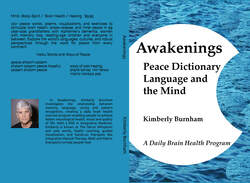 Look Inside on Amazon
Look Inside on Amazon
|
|
|
|
|
Now Available: Awakenings
I am looking for guest blog opportunities and a position as poet-in-residence. My current project is writing dictionary poems using words in different languages for the English word "peace." You can read some of my poems on Poemhunter .
As poet-in-residence I would write poems on different words in different languages and broadcast them throughout the social media blogosphere. Each poem would link back to your site where the word or language appeared.
I would expect some sort of stipend and a six month to one year placement. Please contact me for details if your organization is interested in having a poet-in-residence to help get your message out. Nervewhisperer@gmial.com
(Regular rates $120 per hour or 10 sessions for $650.)
(Integrative Medicine)
Poet & Brain Health Expert
Read some of Kimberly's poems on PoemHunter, Inner Child Press Year of the Poet Poetry Posse, Tiferet 2017 and Tiferet 2015 and her Amazon Author's page
Download as a Google calender app to your phone or computer
Medical research indicates that learning a new language after age 50 or figuring out puzzles or singing, playing music and reading rhythmical poetry can help decrease the chances of Alzheimer's and dementia as well as improve brain plasticity and function.
This calendar is not a new language but is the language of peace or the words for peace in hundreds of different languages. It will take five years to learn or meditate on the 2000 different words for peace found here.
To learn the word for peace (one word a day) in every known language is perhaps a 20-year project but if you start with today's word it will bring you more inner peace, spread community peace and increase the sense of calm and tranquility throughout the world. Your brain health and pattern recognition skills will also benefit.
These exercises and poems are meant to decrease stress, increase conscious awareness and increase your ability to see the opportunities to grow and connect in the world around you.
Set up a free Brain Health Consultation with Kimberly Burnham Today
Archives
April 2024
March 2024
February 2024
January 2024
September 2023
August 2023
July 2023
May 2023
April 2023
June 2022
April 2022
March 2022
January 2022
May 2021
March 2021
January 2021
December 2020
September 2020
August 2020
July 2020
June 2020
May 2020
April 2020
March 2020
February 2020
January 2020
December 2019
September 2019
August 2019
July 2019
June 2019
May 2019
April 2019
March 2019
February 2019
January 2019
December 2018
November 2018
October 2018
September 2018
August 2018
July 2018
June 2018
May 2018
April 2018
March 2018
February 2018
January 2018
November 2017
October 2017
September 2017
August 2017
May 2017
February 2017
January 2017
December 2016
August 2016
July 2016
March 2016
February 2016
January 2016
December 2015
November 2015
October 2015
September 2015
August 2015
July 2015
June 2015
May 2015
April 2015
March 2015
February 2015
January 2015
December 2014
November 2014
October 2014
September 2014
August 2014
July 2014
June 2014
May 2014
April 2014
March 2014
February 2014
January 2014
November 2013
August 2013
June 2013
April 2013
February 2013
December 2012
October 2012
August 2012
June 2012
May 2012
October 2011
September 2011
July 2011
October 2010
October 2008
January 2007
October 2006
September 2006
May 2006
April 2006
March 2006
January 2006
November 2005
June 2005
August 2004
January 1999
Categories
All
10 Meter Walk Scores
2014 The Year Of The Poet
2015 Parliament Of World Religions
2016 The Year Of The Poet
2017 The Year Of The Poet
2018 The Year Of The Poet
2019 The Year Of Indigenous Languages
2019 The Year Of The Poet
2019 Tiferet Non-Fiction Essay Contest Winners
2020 Presidental
20 / 20 Seeing Color Around The World
2020 The Year Of The Poet
2020 Year Of The Poet
25 Years Of Peace In 10000 Languages Around The World
2nd Look Books
30 Poems In 30 Days Writing Prompts And Poems From Tiferest Journal
30 Ways To See Faster & Play Stronger A Month Of Vision Strategies For Athletes And Successful People
4th Of July (USA)
5 Best News And Entertainment
5Best News And Entertainment
5 Elements Theory
Aakriti Kuntal
Aanika Aery
Aari (Ethiopia)
Åarjelsaemien Gïele (Norway)
Åarjelsaemiengïele (Sweden)
Aaron H. Tornberg
Abaluhya (Kenya)
Abaluyia (Kenya)
Abau (Papua New Guinea) Liwak Marowhway
Abdumominov Abdulloh
Abenaki
Abenaki-Penobscot (Maine)
Abenaki-Penobscot (Quebec)
Abhilipsa Kuanar
Abnaki
Abraham N. Benjamin
Abstracts
Abua (Nigeria) Eephọ
Academia.edu
Aceh Indonesia
Aceh Or Achinese (ace) Or Acehnese
Achang (China)
Achang (China) Nyenstap
Achrei Mot
Achrei Mot - Kedoshim
ACLU
Acrostic Poem
Acrostic Poetry
Action Verbs
Activation By Poetry
Activism At The United Nations
Acupressure For Vision
Acupressure Therapy
Acupuncture Therapy
Adam Brown
Adam T. Bogar
Adaptation
Adilabad Gondi (India)
Adrija Chatterjee
Adults
Advaita
Adventure Travel
Advocacy
Afar Or Qafar (Ethiopia)
A Feminist Poet On Found Poetry In Nathaniel Hawthorne's The Scarlet Letter
Affective
African Khoisan (Africa)
African Languages
African Peace
Africa Peace
Afrikaans (South Africa)
Afro-Asiatic Languages
Afshan Fatima
Agnes Eva Savich
Agnostics
Agusan Manobo (msm) (Philippines)
A History Of The Jews
Ahuva-Natasha
Aida G. Roque
Aishwariya Laxmi
A Jewish Guide To Judeo-Tamarian Imagery
Akan Asante (Ghana)
Akane
Aksum (Salaam)
Alabama
Alan Lighthouse
Alan Summers
Alan W. Jankowski
Albanian (Albania)
Albert Einstein
Albert Infinte The Poet Carrasco
Alexis Rotella
Alfreda Ghee
Ali Abdolrezaei
Alice Forresteron
Alice Pero
Alice Scott-Ferguson
Alicia C. Cooper
Alicia Minjarez Ramírez
Alicja Maria Kuberska
Allen McNair
Allison Tobey
Alliterative Poetry
Altaic Languages
Alternative Medicine
Altlanta Magazine
Alyssa Jan Dela Fuente Poet
Alzheimers-disease22012bb5c8
Alzheimer's Disease Poetry Project
Amanda Sibernagel
Amazon
Amazon.au (Austrailia)
Amazon Author's Page
Amazon.ca
Amazon.co.jp (Japan)
Amazon.com.br
Amazon.com.mx
Amazon.com.uk (UK England)
Amazon.de
Amazon.es
Amazonia
Amazon.in (India)
Amazon.it (Italy)
Amazon Kindle
Amazon.nl
Amazon Reviewer's Profile
Amber Color
Amber West
Ambika Talwar
Ameedah Mawalin
American Dream
Amerind Languages
Amharic (Ethiopia)
Amina Hussain El-Yakub
Amy Gentile
Amy Jill-Levine
Amzaon.com
Ana Nedelcu
Anca Mihaela Bruma
Ancient
Ancient Pathways
Ancient Prophet
Andrew W. Mellon Foundation
Anecdotes
Angami Naga (njm) (Nagaland India)
Angelfireon
Angélique Jamail
Anger
Anger Management
Angry
Animal Rights
Animal Vision
Animists
Ankit Malhotra
Anna Emilia Otello (Italy)
Anna Jakubczak Vel Ratty Adalan
Anna Nicole D. Velez
Ann Chalasz
Ann Doyon
Anne Cockitt
Ann E Michael
Annest Gwilym
Ann Howells
Ann J White
Ann J. White
Anord Sichinsambwe
Anthologies
Anthology
Anthology Personal Essay
Anthony Arnold
Anthony Blake
Anthony Itopa Obaro
Antonia Clark
Antonietta Losito
Anwer Ghani
Anxiety
Ao Naga (India)
A Palavra Paz Em Varios Idiomas
Apatani (apt)
Aphorisms
Appendix Health Exercises
Apple Trees
Apricot Trees
April 11
Aprilia Zank
April Poetry Contest
Arabic
Arabic (Jordan)
Arabic (Middle East)
Arabic (Salaam)
Arabic (Syria)
Archita Mittra
Arctic Circumpolar
Argeplon Saami (Sweden)
Ariel Noelle Poet
Arithmetic
Arizona Healing Journal
Arizona US
Arnie Davidson
Arnita D Doggett
Arnold Thomas
Art Festival
Artificial Intelligence
Artist In Residence
Artists
Artist Statement
Artok
Arts
Art Therapy
Art Thief Cracks Healing Code For Parkinson's Disease
A Selfish Poet
Ashish Narain
Ashok K. Bhargava
Asia
Asian Cars
Asian Music
Asian Peace
Asian Poetry
Asia Voight
Asmabi College
A Society Of Souls
Asoke Kumar Mitra
Assamese
A Storied Career
A Story For Anyone Struggling To Feel Comfortable In Their Own Skin Clothes And Community
Athletes
Atiya Aftab
Atsang (China)
Attachment Disorders
Audio Book / Audiobook
Auditory Testing
'Auhelawa (Papua New Guinea)
Auhelawa (Papua New Guinea)
Aukaan (Suriname)
Australian Languages
Australia (Oceania)
Austronesian Languages
Author
Authors On Show
Autism
Autoimmune Disease Solutions
Avatar
Awadhi
Awakenings Peace Dictionary Language And The Mind
Awakening The Self
Award Winning Author
Award Winning Poet
A Woman's Place In The Dictionary
Aziz Mountassir Mountassir (Morocco) Poet
Babies
BA Brittingham
Babs McGrory
Baby Boy Names
Baby Girl Names
Back Pain
Bacteria
Badaga (bfq)) (India)
Badugu (India)
Baha'i Faith
Bahai (Muslim)
Bakalanga (Botswana)
Balancing The Sleep Wake Cycle Sleep Better Learn Faster Contribute More And Enjoy Life To Its Fullest
Balancing The Sleep-Wake Cycle Sleep Better Learn Faster Contribute More And Enjoy Life To Its Fullest
Bali Indonesia
Balti
Baluhya (Kenya)
Bambara (Mali)
Banned Books
Bantu
Barbados
Barbara Alexander
Barış (peace)
Bark Teas
Barnet Bain
Barret Hedeen
Baseball Players
Basia Alexander
Basketball Game
Basketball Players
Basketo (Ethiopia)
Bearded Dragons
Beate Sigriddaughter
Beauty
Beauty Of Poetry
Before And After Dictionary Poems
& Behavioral Neuroscience
Belinda Roman
Benabena (Papua New Guinea)
Bengali (India)
Bengali (Pakistan)
Benign Joint Hypermobility
Benin
Benjamin Bogocius
Benjamin Hyatt
Ben Yehuda Press
Bernardine Marie Fontanezon
Beth Hamon
Beth Walker
Betsy Mars
Better Help
Beyond The Now
Bhagirath Choudhary
Bharati Nayak
Bhisma Upreti
Bhubaneswar (India) Poet
Bible Verse Translation With Love Joy And Peace
Bicycling
Bicycling For Food
Bidumsáme Giella (Sweden)
Bilateraly Brain
Bilingual Brain
Bilingual Poetry
Bilingual Speakers
Bill Cushing
Bill Waters
Biochemistry
Biographies
Biography
Biological Constraints
Biophysics
Bipolar Disorder
Bird Flu
Birthday Gift
Bismay Mohanty
Bisumsáme Giella (Sweden)
Bitter
Black Out Poetry
Blackout Poetry
Bladder (Blue)
Blessing Peace
Blindness
Blinking Exercises
Blogger
Blog Post
Blog Talk Radio
Blood Pressure
Blue Color
Blue Miao Dialect Of Hmong
Blue Race Tracks
Blurred Vision
Body Peace
Bo Eason
Bone Health Exercises
Book Anthology
Book Author
Book Graphitti
Booking.com
Book Marketing
Book Publishing Journal
Book Publishing Tips
Book Reviews
Books
Book Writing For Kids
Book Writing For Seniors
Born Into Brothels
Bosnian (Bosnia)
Bosnian (Bosnia)
Bosnian (Herzegovina)
Bostwana (Afrikaans)
Boulder Colorado
Boy Erased
Bozena Helena Mazur-Nowak (UK)
Brad Gooch
Bragging
Brain
Brain Dura
Brain Function
Brain Health Consultant
Brain Health Exercises
Brain Imaging
Brain On Poetry
Brain Plasticity
Brain Research
Brain Reserves
Branches Of Light
Brandan Robertson
Braving It
Brazil
Brenda C. Mohammed
Brendan Walsh
Brendon Buchard
Brian D Morrison
Brian Yosef Schachter Brooks
Brian Yosef Schachter-Brooks
Brindha Vinodh
British Virgin Islands
Brown Color
Bruce Labenz
Bruising
Brush Painting
Bryan Rickert
Buddhism
Buddhist Books
Buddhists
Buhutu (Papua New Guinea)
Bumala Busia Kenya
Burarra "Magaya" (peace) Australia
Business Books
Butch Lesbian
Butterflies In The Stomach
Buzby Bywater
Cagnitive Neuroscience
Callie McCann-Eros
Calm Down
Calm Peace
Calm Peaceful
Calm Water
Cameroon Africa
CAM Research
Canada
Canada North America
Canarese (India)
Cancer Alternatives
Candice L. Daquin
Candle Light
Cantor
Cardinal Directions
Cardiovascular Disorders
Cards Against Humanity
Caribbean
Caribbean Hindustani (hns) Suriname
Carlene Beverly
Carl Sandburg
Carlus L. Wilmot
Car Nicobarese (India)
Carol Barbour
Carol Clark Williams
Carole MacRury
Caroline 'Ceri Naz' Nazareno
Caroline Myss
Carolyn Adams
Carolyne Mathlin
Carolyn Foster Segal
Carolyn Tilove
Carpal Tunnel Syndrome
Catalan (France)
Catala (Spain)
Cataracts Exercises
Catholic Vespers
Cathrine Chidawanyika Makuvise
Catia Pugliese (Italy)
Catriona Knapman
Cayman Islands
Cayuga (Canada)
Cecum Health Exercises
Céline Cloutier
Céline Cloutier
Cellular Healing
Center For Public Leadership
Central America
Central Yupik (Alaska) Uitanqegcineq
Cerebral Hemispheres
Cerulean Blue Color
Chakras
Change Makers
Changming Yuan
Chantal Herman
Chanting
Charles C Mann
Charles Darwin
Charles SeaBe Banks
Charlotte Addison
Cheap Peace
Chemical
Cheryl Zvikomborero Musimwa
Chief Arvol Lookinghorse
Chijioke Ogbuike
Children
Children And Poetry
Children's Books
Children's Rights
Children's Writing Class
China
China Asia
Chinese - Australians
Chinese (China)
Chinese Clock
Chiropractor
Chiwawa Fungai Manana
Chiyao (Tanzania)
Chlorophyl
Chocolate
Choso'nmal (Korea)
Choson'o (Korean)
Chris Attwood
Chris Dominiczak
Christena Antonia Valaire Williams
Christena Williams
Christian
Christian Books
Christianity
Christine Aube
Christine Kloser
Christmas
Christopher Ryan
Christopher Schultz
Chronic Low Back Pain
Chronic Pain
Church Of Jesus Christ Of Latter Day Saints (LDS)
Church Of Jesus Christ Of Latter-day Saints (LDS)
Čik Calm Quiet
Cindy Wigglesworth
Cingulate Gyrus - Brain
Circadian Rhythms
Citrus
Civil War
Ciyawo (Malawi)
Classical Ethiopic (Ethiopia)
Claudia Angileri (Italy)
Claudia Piccinno (Italy)
Clayton L Sanders
C L Battick Poet
CL Bledsoe
Click Languages
Clicks
Climate Change
Climate Change Poetry
Clydesdale Press
Coach
Cocama-Cocamilla (Colombia)
Cocama (Colombia)
Cochabamba Quechua (Bolivia)
Cofán (Colombia)
Cofán (Ecuador)
Cognitive
Cognitive Processing
Cognitive Reserves
Cold Peace
Coleman Barks
Collective Calmness
Collective Energy Circle (CEC)
Colombia South America
Colon Health Exercises
Color And Healing Poetry Challenge
Color Blindness
Color Boundaries
Color Cones
Color Idioms
Colorimetry
Color Perception
Color Preferences
Colors
Color Therapy
Color Vision
Color Visions
Color-visions
Color-Word Stroop Task
Colour Vision
Comfortable
Coming Out Day
Coming Out Gay
Community Of Humanity Blog
Community Prayer
Compassion
Computer Modelling
Concrete Poetry
Conference Speaker
Conflict
Conflict Management
Conflict Resolution
Confused
Conlang
Connective Tissue
Connective Tissue Healing
Consciousness
Conservation Poetry
Conservative Temple Beth Shalom
Consonants
Constructed Languages
Conventional
Conversion
Cookbook
Cooking
Cool Peace
Copenhagen
Corey Mesler
Cornea
Cornish (Cornwall)
Corona Virus
Corporate Brat
Cortex
Council On Library And Information Resources
Countries
Cover Art
Covetous
Crafts
Craig Meriwether
CranioSacral Therapy
Crave Peace
Creating Calm Network Publishing
Creating Calm Publishing Group
Creative Process
Creativity
Cree (Canada)
Creole
Cross USA Bicycle Ride
Csp Shrivastava (India) Poet
Cuba
Culinary Creativity
Culinary Travel
Curacao
Curator
Current Books
Current Event Poems
Current Events Poetry
Cutis Hyperelastica
Cutural Festival
Cyanobacteria
Cynthia Clark
Cyrilic
Cyrillic
Daffodils
Dahlia Topolosky
Daily Brain Health Program
Daily Color Meditation
Daily Peace Challenge
Daily Peace Meditations
Daily Vision Health Program
Dainy-bernstein
Dairyu-michael-wenger
Dang You To Heck
Daniel Amen
Daniel-irwin
Daniel-tigner
Daniel-tigner
Danish (Denmark)
Dan Pink
Dari-afganistan
Darier's Disease
Dark Blue Color
Dark Green Color
Darrell-holdaway
Darren-cormier
Das Wort Friede In über 5000 Sprachen
Dave-bonta
David-he
David-j-kelly
David Rock
David-schloss
Day In History
De’Andre Hawthorne
Debaprasanna Biswas (India)
Debasish Mishra
Debbie-delacuesta
Debbie-hall
Debbie-johnson
Debbie-m-allen
Debbie Strange
Debi-kennedy
Deborah-mcgaffey
Deborah P Kolodji
Deborah-p-kolodji4051a48460
Debra-hanes
Decayed
Deepak Chopra
Defense Of Marriage Act DOMA
Defy Definitions
Deists
Dementia-friendly-communities
Dementia Journal
Demetrios Trifiatis
Democracy-fund
Denisa Kondic (Bulgeria)
Denisa Kondic (Serbia)
Denise Isaac
Denmark
Depression
Depression Solutions
Design
Destiny
Detroit Car Industry
Deuteranopia
Developmental Milestones
Devereaux Frazier
Dhama Dove Poet
Dharma Teacher
Dholuo (Kenya)
Diabetes
Diabetic-neuropathy
Diabetic Neuropathy Treatments
Dialect
Diamond Feng Shui Fest Free
Diane Gunning
Diane J Schmidt
Diane-puterbaugh
Dianne-l-polsenoon
Dictionary
Dictionary Poem
Dictionary-poems
Dictionary Poetry
Didi Artier
Dietra-reid
Digestion
Digestion Health
Digestive Exercises
Digestive-issues
Diglossia
Digust-exercises
Dilip Mohapatra
Dime (Ethiopia)
Dimensions
Disgust
Disgust-exercises
Diversity
Division Of Labor
Djibouti
Djurica Edelinski (Serbia)
Dl-love-davis
Doaists
Docile-peace
Doc-suds
Dog Names
Dogri-india
Domenica Alfredo Pasolino (Italy)
Dominica
Dominican-republic
Donna-baier-stein
Don-thompson
Dopamine
Dorit-sasson
Dorota Stępińska - Translator Poland
Dos-madres-press
Douala-cameroon
Doukhbor-russia
Doukhobor-canada
Down-syndrome
Down-to-earth-calm
Dragana Simic (Serbia)
Dragons-leap-temple
Dr-diti-ronen
Dream-peace
Dream-people
Dr. Huilya N. Yilmaz (Poet USA)
Driftwood
Dr-jernail-s-anand
Dr-perugu-ramakrishna
Druidry
Duncan-campbell
Duodenum Health Exercises
Dutch Netherlands
D Vinod Kumar
Dwane-reads
Dyslexia-exercises
Dystopian Fiction
Dyula (West Africa)
Eagle Moon Raes
Earth Day
Earth Day 2015
Earth-day-2019
Earth-elements
Earth Poetry
Eastern-abnaki
Eastern Sami
Eastern Washington
Eat Pray Love
Economy
Ecstatic-poems
Editor
Editors
Education
Edward-manai
Ed-werstein
Edwin A Abbott
Edyta Hanslik (Poland)
Efik-efi-nigeria
Egyptian-north-africa
Ehlersdanlos-syndrome
Einsteins-dream
Ekphrastic Fiction Novels
Ekphrastic Poetry
Electroacupuncture - EA
Electrophysiology
Elena Kegan
Elizabeth Esguerra Castillo (Philippines) Poet
Elizabeth Gilbert
Elizabeth Jaeger
Elizabeth-kubler-ross
Elizabeth-marchitti
Eliza Segiet - Poet Poland
Ellen Bass
Ellen-sander
Embarrasing
Emilia T Davis
Emily-vieweg
Emma-jane
Emotional Consciousness
Emotional Freedom Technique - EFThealth
Emotional Health
Emotional-health
Emotional Pain
Emotions
Empathy
Endangered-languages
Endoplasmic Reticulum Stress
Endurance
Energy
Energy Medicine
Enesa-mahmi263
Engery Medicine
English
English England
English (Europe)
English Language
English (North America)
English Peace
English (United States Of America)
Enlightenment
Environmental
Environmental-issues
Environmental Poetry
Epilepsy
Erasure Poetry
Eric-a-lohman
Eric Komar
Eric Soakai
Erika-ifang
Erin-castaldi
Erin-mintaon
Eritrea
Ernesto P. Santiago
Erolina-rodrigues
Erzya (Russia)
Esophagus Health Exercises
Esperanto-conlang
Essay-writer
Esthetic Beauty
Ethiopia
Euclea-tree
Eunice Barbara Novio
European Cars
European Languages
European Parkinson’s Disease Association (EPDA)
European Parkinson’s Disease Association (EPDA)
European Peace
Everyday-essentials
Excited
Expressive-language
Extinct Languages
Extracellular-matrix
Eye Exercises
Eye-pain
Eyes
Eyesight
Eyesight Exercises
Eyesight Recovery
Facebook
Faces-of-peace-in-india
Fahredin-shehu
Faith Bemiss
Fakis Vizzentalka Sigmun (Serbia)
Faleeha-hassan
Family
Family Travel
Fancis Of Assisi
Farm Fresh Food
Farming
Farsi-iran
Fasciology
Fatima Medjedovic Begovic (Montenegro)
Fear
Featured Poets
February
Federal-communications-commission-universal-service-program-for-schools-and-libraries-erate
Feeling-heard
Female Husbands
Feminism
Feminist
Feminist-poetry
Feng Shui
Fernando José Martinez
Festival-in-a-box
Fibromyalgia
Fiction
Fienup-Riordan
Fig Tree
Fijian
Fijian (Fiji)
Fiji (Pacific)
Finding Santa
Finishing-line-press-2016-nebraska-book-award-for-poetry
First-language
Five-element-theory
F-j-bergmann
Flannery O'Connor
Flatland A Romance Of Many Dimensions
Flowers
Flower Teas
Fluency
Folktales
Food Desert
Food For The Body Mind Spirit
Food-peace
Food Photography
Food-poetry
Foot
Football
Football Players
Foreign Currency
Foreign Language Learning
Foreword
Forgiveness-peace
Founding Board Members
Found Poem
Found-poems
Found Poetry
Four-noble-truths
Fozia Arif
Fractals
Fragile-x-syndrome
Fragrant
Français (France) Paix
Frances Sanchez
Francina-hartstra
Francisco José Casado Pérez
Francis Of Assisi
Frank O'Hara
Frank Verkley (Canada) Poet
Frederick-pollack
Free Book Download
Free-calendar
Freedom
Freedom-of-religion
Free-download
Free-download
Free EBook
Free-ebook
Free-video-class
Free Video Class Workshop
French Cooking
French-fran
French-franccedilais-france
French (France) Paix
Friendship-peace
Frogs
Frontal Lobe
Frontiers-in-psychology
Fruity
Fuel-body
Fuel-brain
Functional Medicine
Fungi
Fusiform-brain
Future Of Work
Gabriella Burnel
Gabrielle-denize-newsam
Gaelic Scottish Scotland
Gàidhlig Gla Scotland
Gaijin English
Gail Saunders
Gail Weston Shazor
Galatians-52223
Galatians 5 22 23 Translation
Galen Of Pergamon
Gallbladder
Gallbladder-wood-elements
Ganda (Kenya)
Garden
Gardening
Gardening For Pets
Gary Glazner
Gary Malkin
Gary Zukav
G. Augustine Dahn
Gautama Buddha
Gautam Nadkarni
Gayle-howell
Gayle-howell-lady-silk
Gay-marriage
Geeta Varma
Geez-ethiopia
Gender Identity
Gender Studies
Generosity
Gentle-peace
Geoff-barnbrook
George-bishop
George Henschel
Gerald-solomon
Geriatric Medicine
German Deutsche (Germany)
German-germany
German-germanyc977c3d56e
Gerontologist
Get Around With Cargo
Getty Research Institute
Gianni Romaniello (Italy)
Gilles Leukade
Gina Bonasera (Italy)
Giovanna Nilo (Italy)
Gita Bharath
Glenna-luschei
Glenn-groves
Glenyce-hughes
Global-nomad
Global-poetry-web
Globual Pallidus - Brain
Gloria J. Wimberley
Gloria Piantek
Glottal-stop
Gluten-Free Exercises
Goal-setting
Going-with-the-flow
Goldilocks Principle
Gompa Radio Station Liberia
Good
Good And Peaceful Meanings
Good Fortune
Good-morning-peace
Goodness Peace
Google-calendar
Google Scholar
Gott-empfangen-108-wegweiser-zu-den-quellen-des-lebens
Goutam Saha
Graham Robinson
Grammar
Grandmas-kitchen
Grant Funding
Grapes
Greek
Green
Green Blue Color
Green Color
Green Colour
Green-miao-dialect
Green Poetry
Greens
Grief
Gri-south-africa
Growing Radishes
Guadeloupe
Guatemala
Guest Blog
Guest Blogger
Guinotte-wise
Guitar
Gujarati (India)
Guoyu Taiwan
Gupapuy331u-dialect
Gupapuyu-dialect
Gurmukhi-india
Haida-british-columbia
Haiku
Haiti
Hand-Eye Coordination
Hang-over
Hannah Seidel
Hanoch-guykaner
Hansha-teki
Happiness
Happy New Year
Happy Peace
Happy-peace
Harmony
Har Shalom
Harvard Kennedy School
Harvard-medical
Harvard-medical
Hassan Hegazy Hassan (Egypt) Poet
Hassen Gara
Hate Crimes
Hawaii North America
Hayim Abramson
Hazan
Hazel-saville
Hazon
Hazon Cross USA Bicycle Ride 2013
Headache-healing
Headaches
Healers
Healing
Healing Poetry
Healing-poetry
Healing Story
Healing The Soul Of America
Healing Through Words
Health
Health Care Professionals
Health Coaching
Heart Health Exercises
Heart Peace
Heartspokenniecy
Hebrew Bible Poetry
Hebrew-israel
Hebrew (Israel) Shalom
Hebrew Prayers
Heiwa-peace
Helene-langevin-md
Hema Ravi
Henry-howard
Henry Miller
Herbal Medicine
Herbal Tea
Herero (Angola)
Heschel And King Marching To Montogomery
Hidden Brain
High Altitude
Hiking
Hillary-kobernick
Hillary Mainga (Kenya)
Hillel
Himba (Namibia)
Hindi (India)
Hindus
Hiram-larew
Hiroshima-peace-memorial
Hispanic Heritage Month
Hmong
Hmong-daw
Hoehn And Yahr Scores
Homeopathy
Homeostasis-balance
Home-peace
Homonyms For Peace
Homosystinuria
Honduras
Horn Of Africa
Horses
Hot-flashes
Hrisikesh-padhye
Hudna-peace
Hülya N. Yılmaz (Pennsylvania
Human-cognition
Humanists
Humanitarian Movement
Humanities
Humankind
Humankind-journal
Humankind-journal
Human-psyche
Human-resources
Human-rights
Hunger
Hunting
Huntingtons-ataxia
Huntingtons-diesease
Hussein Habasch
Huumllya-n-y305lmaz
Huumllya-n-y305lmaz39ee37f2b9
Huumllya-n-yilmaz
Huumllya-n-yilmaz
H W Bryce
Hyperlysinemia
Ibrahim Baba Lawan
Ibrahim Honjo (Canada)
Idakhoisukhatiriki-kenya
Idaxo-kenya
Idioms
If Not Now
Igbo (Nigeria) Ùdo
Igor Marinovsky (Ukraine)
Illeum Health Exercises
Illustrator
Imagination
Imam-jamal-rahman
I'm From Provo Utah
Immigrant
Immigrants
Immigration-crisis
Impersonal Movement
Improve-walking
Impurity And Gender In The Hebrew Bible
Ina-schroderszeeders
India
India (Southeast Asia)
Indigenous Languages
Indonesia
Indonesian
Indonesian-indonesia
Infants
Inflammatory Bowel Exercises
Information Medicine
Inner-child
Inner Child Magazine
Inner Child Press
Inner-child-press
Inner Child Work
Inner Peace
Inner-peace
Insights-into-religion
Insomnia
Inspiration
Inspirational Memoir
Inspired-by-gandhi
Institute-of-museum-and-library-services-imls
Insula-brain
Integrative Manual Therapy
Integrative Medicine
Intelligent Peace
Intention
Intention Writting Workshop
Interfaith
International Day Of The African Child
International-mother-tongue-day
International Organizations
International Peace Day
International-poetry-month
International-poetry-month
International Poetry Month Challenge
International Womens Day
International-writing-competition-20142015
Interntional-communication
Interpersonal-experience
Intersections
Intimacy-peace
Involuntary
Iowayotoemissouria-kansas
Iraq
Irena Klepfisz
Irene Marks
Iris Bakalar
Irish (Ireland)
Ishani-banerji
Ishani-pant
Ishmael-street
IsiZulu (Africa)
Isukha-kenya
Isuxa-kenya
Itakho-kenya
Italian Italiano (Italy)
Italy (Europe)
It-works
Itzela-sosa
Iwu Jeff
Iwu Jeff YOTP Poet
Iyad-shamasnah
Izza Fartimis
Jacarilla-apache-north-america
Jack Canfield
Jackie Davis Allen
Jackie Mead (UK)
Jack Kessler
Jack Maze
Jacob-edwards
Jacob-fowler
Jacob-nordby
Jacqueline-d-e-kennedy
Jagravemm-peace
Jainists
Jalkunan-burkino-faso
Jalpa Sukhanandi
Jamaica
Jama-poetry-and-medicine-editor
Jama-poetry-and-medicine-editor
James Brownson
James Parkinson’s Essay On Shaking Palsy
James-rollins
Jamie-bond
Jamie-john
Jan-benson
Janet-barry
Janet-boyer
Janet-bray-attwood
Janet-mccann
Janet-p-caldwell
Japan (Asia)
Japanese-brazil
Japanese Nihongo (Japan)
Japanese-peace-memorial
Japan Steel (Kamaishi)
Jasmine Farrell
Jason-hibbitts
Jason Jinen Shulman
Jason-primm
Jason Shulman Library
Javanese - Asia
Jaydeep Sarangi
Jay-malaga
Jay-rubin
J-barrett-wolf
J-barrett-wolfc23e5c92ed
Jean Galt Coblentz
Jean-houston
Jeanjacques-fournier
Jean-leblanc
Jeff Gold
Jeffrey-alfier
Jeffrey David Zacko Smith
Jeffrey D. Zacko-Smith
Jeffrey Zacko-Smith
Jejunum Health Exercises
Jennifer L. Gibaldi
Jennifer-roth-jackson
Jen-walls
Jerusalem Artichokes
Jesse-minkert
Jessica Carlson
Jessica-forcier
Jessica-stilling
Jet Lag
Jeton Kelmendi
Jewish
Jewish-aramaic-middle-east
Jewish Book Group
Jewish Books
Jewish Chants
Jewish Community Of The Palouse
Jewish Environmentalism
Jewish Family Services
Jewish Gifts
Jewish Havdalah
Jewish History
Jewish Justices
Jewish Lights
Jewish Malayalam Israel Kerala India
Jewish Music
Jewish Perspectives
Jewish Poetry
Jewish Renewal Movement
Jewish Synagogue
Jewish Writers
Ji-kleinberg
Jill-delbridge
Jim Conroy
Jim-conroy
Jim Hendrix
Jimi Hendrix
Joan-colby
Joanna Laufer
Joanna Svensson (Sweden)
Joan Tollifson
Jodo-shinshu
Joe-albanese
Joe-blanda
Joe Daverbal Minddancer
Joey-gould
John Backman
John-carroll
John C. Mannone
John F Kennedy
John-hawkhead
John-kaprielian
John Lennon
John-reinhart
John-schulte
Johny Takkedasila - Poet India
Jonathan Aquino (Philippines)
Jonathan-penton
Jonel Abellanosa
Jon-freeman
Jordan-gruberon
Joseph B Wirthlin
Joseph Kuntz
Joseph-lpaire
Joseph L Paire Aka Joe Daverbal Minddancer
Joshua Bernstein
Joshua-gage
Joski-the-poet
Journal Article
Journalist
Journal-of-neurosurgery
Journals
Joy
Joy Katzen Guthrie
Joy-katzen-guthrie
Jr-simons
Juba-arabic-sudan
Judaica
Judaica Gifts And Books
Judaism
Jude-brigley
Judeo-aramaic-middle-east
Judeo Languages
Judeo-Languages
Judeo-Tamarian
Judeo-Tamarian Judeo-Tam.
Judith-adams
Judy Caplan Ginsburgh
Julia-carlson
Julie Warther
June-bugg-barefield
June-lsquobuggrsquo-barefield
Just-bill-peters
Kabbalah
Kabbalist
Kabbalistic Healing A Path To An Awakened Soul
Kaili-indonesia
Kalam (Papua New Guinea)
Kalanga-zimbabwe
Kalderash-romani
Kaleidoscope
Kallisa-m-powell
Karaboro (Burkina Faso)
Karen-mcpherson
Karina-rindt
Kassem (Burkina Faso)
Katarzyna Brus-Sawezuk YOTP Poet
Kate-clanchy
Kate-peterson
Katherine-wyatt
Kathryn-johnson
Kathryn-locey
Kathy Hansen
Kat-lehmann
Kavi-sebastian
Kayanmurikmodang-oceania
Kayan-sarawak-kalimantan
Kaye-abikhaled
Kayla Pica Williams
Kearoma-desiree-mosata
Kedoshim
Keith-alan-hamilton
Kelle-sutliff
Kelly-isola
Kelly-mcquain
Kendall-a-bell
Kenya
Kenya (Africa)
Keratoconus Exercises
Keratosis Follicularis
Kersten-christianson
Ketaki Datta
Keto Coffee
Kev-sib-haum-xeeb-peace
Keyan International Poetry Festival
K.G. Balakrishnan
Khalid Imam
Khoekhoe
Khoisan-languages
Khoisan Languages South Africa
Khusi Pattanayak
Khwrwmdao Basumatary
Kiche-guatemala
Kichwa (Peru)
Kidney (Blue)
Kidney Health Exercises
Kikoman Soy Sauce
Kimberly-bolton
Kimberly Burnham Bio
Kimberly Burnham Integrative Manual Therapy
Kimberly Burnham - Poet USA
Kimberly Burnham Writer
Kimberly-cunningham
Kimeteiru (Japanese)
Kim-rosen
Kindle EBooks
Kindness
Kiribati
Kit-pancoast-nagamure
K-jayakumar
Klingon-conlang
Knight-foundation
Knives
Kodungaloor-kerala-india
Kolawole Adebayo
Komi Zyrian (Russia)
Komo (Africa)
Kongo-congo
Korafe-papua-new-guinea
Korean-north-korean
Korean-south-korea
Korean-war
Kristin-berkeyabbott
Kristin Hannah
Kuei-shien Lee
!Kung (Africa)
Kurdish (Turkey)
Kurtöp (Bhutan) Dekit
Kylana
Kyle-hemmings
Lake Turkana (Kenya)
Langar-sikh
Lango (Uganda)
Language-and-cognition
Language Brain And Cognition
Language Country Word For Peace
Language Diversity
Language Learning
Languages
La Parola Pace Nelle Diverse Lingue Del Mondo
Lapland
Laren-eyler
Latha-y
Latin (Europe)
Latin (pax Peace)
Laura-and-john-arnold-foundation
Laura-grace-weldon
Laura-j-wolfe
Laura Marshall
Laura-page
Laurie Wagner
Lawyers
Lay-me-down
Lb-sedlacek
Lds-lesbian
Lds-lesbian
Leadership
Leadership Institute
Leadership Training
Left-brain
Leg
Leg-pain
Leniency
Lenstorecouk
Lera Boroditsky
Lesbian Mormon
Lesbian-mormon
Lesbian Studies
Lesbian Wedding
Leslie David Bush
Leslie-gunterson
Lesotho (southern Africa)
Lester-b-pearson
Level Peace
Leviticus
Lexicon
LGBTQ
LGBTQ Plus
LGBTQ Plus Essays
LGBTQ Poetry
LGBTQ Travel
Life Consider It A Joy
Life-is-around-me
Life-purpose
Lifestyle
Light Green Color
Light Therapy
Lilly-endowment
Linda-p-mattsonon
Linda-simone
Linda-wilkinson
Lingala (Africa)
Linguistics
Linkedin Interview
Linkedin-pulse
Linkedin Pulse Blog
LinkedIn Social Media
Lisa-bloom
Lisa Doob
Lisa-mangini
Lisa-merrai-labon
Lisa Romeo
Lisa-sawyer
Literary-arabic-middle-east
Literary-languages
Live Like Someone Left The Gate Open
Live-like-someone-left-the-gate-open
Liver
Liver Emotions
Liver Health Exercises
Liver-peace
Liver-wood-elements
Living-with-uncertainty
Liz-byrne
Locations
Lois-macnaughton
Lois-p-jones
Lojban-conlang
Longchuan-china
Lonneice-weeks-badley
Lori-a-minor
Loss
Louise-jayne-moriarty
Louvre Art Museum
Love Among The Gods Myths And Relationships
Love Anthology
Love Joy Peace
Love Languages
Love Poetry
Lucky Peace
Lucy-whitehead
Luganda (lug) Kenya
Luganda (Uganda)
Lught Blue Color
Luidakholuisukhalutirichi-kenya
Lule Sami
Luna-soolay
Lunbg Health Exercises
Lung Capacity Scores
Luo (Kenya)
Lwisukha-kenya
Lydia-corteacutes
Lynn-wood
Lyrical-poetry
Maaleekumsalaam-peace-on-to-you
Maaleekusalaam-peace-return-to-you
Mack-j-mitchell
Macula (Eyes)
Macular-degeneration
Macular-degeneration-exercises
Madhuri-pillai
Magi Process
Mahatma-gandhi
Maine-seed
Makah-native-american
Malawi-afrikaans
Malayalam
Malayalam (India)
Malaysia
Male Daughters
Mandarin Chinese (China)
Mandarin-chinese-china
Manjeera Kotla
Manobo-philippines
Manual Therapies
Map
Maple-trees
Maps
Marathi (India)
Marcelle Charrois
Marcia-hurlow
Marci-shimoff
Marci Vitkus
Marek-lukaszewicz
Marfans-syndrome
Margaret-lane
Margery Williams
Margo-royce
Margo-royce
Maria DArcy
Maria Kobets (Belarus)
Maria Miraglia (Italy)
Marianna-hofer
Marianne-paul
Marianne Williamson
Maria Palumbo (Italy) Poet
Maria Pelino (Italy)
Maria Stella Ruggiero (Italy)
Mariela Cordero (Venezuela)
Marieta Maglas
Marietta-mcgregor
Marj-britt
Marketing Poetry
Mark-gilbert
Marriage Proposal
Marshal B Rosenberg
Marshall-lisa
Marshall Rosenberg
Martha Shumba
Martina-reisz-newberry
Martin-balgach
Martinique
Martin-luther-king
Martin Luther King Jr
Marvelous By Room 121
Mary Allen
Mary-eastham
Mary-ellen-gambutti
Mary-k-bernsteinon
Massage School
Material World A Global Family Portrait
Math
Math Poetry
Matrix Energetics
Matthew Abuelo
Matthew-denvir
Matthew-james-babcock
Matthew-yates
Maumlgaya-peace
Maumlwaya-peace
Maureen-kwiat-meshenberg
Maxwanette A Poetess
Maya-khosla
Mayan
Mayget-peace
Mbula-papua-new-guinea
McGill Pain Questionnaire Scores
Meaning
Means
Medical-doctors
Medical-research
Medical Symptoms Questionaire (MSQ)
Meditations
Meek-peace
Meet The Neighbors
Meher Pestonji - Poet India
Melissa-cannon
Melissa-mendelson
Melissa-reddish
Memoir Publishing
Memory
Memory Exercises
Memory-exercises
Memory Preservation
Mende-papua-new-guinea
Menduh Leka
Mental Health
Mental Illness
Merridawn-duckler
Mesoamerica
Messenger-mini-book
Messengers-of-change-network
Metabolic-disorders
Metamorphosis
Mexico (North America)
Michael-estabrook
Michael Gurian
Michael Hahn
Michael-kozubek
Michael Margolis
Michael-saleman
Michele Melillo (Italy)
Michelle-l-schmid
Michelle-manningkogler
Middle-east
Midwest-book-review
Migraines
Mike-andrelczyk
Mike-petrik
Mike-wright
Military-brat
Milo-rosebud
Mind Body
Mindfulness
Mindy Sandler
Minority-groups
Minty
Mir-105210801088-mip-peace
Mir-centre-for-peace
Mirjana Dobrilla (Italy)
Mirror Neurons
Mirror Neurons - Brain
Mir-russian
Misgendering
Mishkan T'Filah Reform Siddur
Miskito (Nicaragua)
Missionaries
Missoula Montana
Mistaken For A MAn
Mistaken Identity
Mitchell-river-cape-york-australia
Mixed-connective-tissue-disease-mctd
Mixed-media-art
M-j-arcangelini
Mohamed Abdel Aziz Shmeis YOTP Poet
Mohammad-azram
Molectular-genetics
Molecular-mimicry
Monica-gurevichimportico
Monographs
Monolingual
Monsanto
Monsif Beroual
Montessori Public School
Mood-disorders
Mòoré (Burkina Faso Africa)
Mordyin (Russia)
Mormanity
Mormonism
Mormon Lds
Mormon-lds
Morphology
Morwen-brosschot
Mossi (Burkina Faso)
Mother
Mother Teresa
Motivation
Motor-control
Motor Cortex - Brain
Motor-vehicle-acciednt-mva
Mountain Climbing
Movement Disorders
Movement Disorders Organization (MDS)
Movement Therapies
Movie Actors
Moving
Multiculturalism
Multicultural-poetry
Multiple-languages
Multiple-sclerosis
Muniam Alfaker
Muscle Energy Technique
Muscle Stiffness
Music Carrier Of Intention In 49 Jewish Prayers
Music Therapy
Muslim Books
Muslim Poet
Nadia Pascucci (Italy)
Nama South Africa
Names
Namibia-afrikaans
Nanai Goldi (Russian Federation China)
Nancy Dunlop
Nancy-hay
Nancy Perloff
Nanowrimo Contest
Nanticoke-massachusetts
Narsquovi-pandora-conlang
Natalie Goldberg
Natalie Young
Natasha Taylor
Nathaniel-hawthorne
National-endowment-for-the-humanities
National Eye Institute (NEI)
National Parks
National-science-foundation
Native-american
Native-american-languages
Native American Religions
Native-speaker
Natural Diversity
Natural-environment
Natural Healing
Nature
Nature-neuroscience
Nature-neuroscience
Nature Poetry
Nature's Sensational Medicineonsciously
Naukatan (Papua New Guinea)
Na'vi (Avatar)
Na'vi (Pandora Conlang)
Navy-poet
Ndebele IsiNdebele (South Africa) Ukuthula Uxolo
Neetu-wali
Neil-leadbeater
Neil-meili
Nelson-mandela
Neptune Barman - Poet India
Nervous
Netherlands
Neural-processing
Neuroadaptability
NeuroAnatomy Resources
Neurodiversity
Neuro Fascial Process
Neurographica Training
Neuroleadership
Neurologist
Neuroplasticity
Neuropsychology
Neuroscience
Neurosurgery
Neurotheology
Nevin-valentine
New-brunswick
New Jersey
New Opportunities
News Is The Muse
News-poem
News-poems
New York
New York City New York
New York Memory Center
New York New York
Ngemba-peace
Ngochang-achang-china
Ngochang-china
NGOS
Ngozi Olivia Osuoha
Niacin
Nicholas-abanavas
Nicholas-klacsanzky
Nicole-hospitalmedina
Niger–Congo Bantu Languages
Night Vision
Nimisha Bowry Dhawan
Nina Chari
Nirzal Sharma
Nitusmita Saikia
Nizar-sartawi
Nizar-sartawi
Nobel-peace-prize
No-mistakes-how-you-can-change-adveristy-into-abundance
No Mistakes How You Can Change Adversity Into Abundance
Nonchristian
Nonduality
Nones
Non-Fiction
Non-Fiction Contest
Nongovernment Organizations (NGO)
Nonindustrial-languages
Nonverbal-memory
Non Violent Communication
Non-Violent Communication
Norbert Góra
Noreen Ann Snyder
Norman-darlington
Northern Idaho
North Sami
Norway (Europe)
Nouns
Nova-scotia
Nuakata Island Papua New Guinea
Nuakatan (Papua New Guinea)
Nucleus-accumbens-brain
Numbers
Nur Mohammed (Bangladesh)
Nursing-education-today
Nutrition
Nutrition Therapy
Nyakallo-posholi
Nyens-nyens-peace
Nystagmus-exercises
NYTimes
Obesity
Occipital Lobe
Ocean Colors
Oceania Peace
Oceanic
Oceanic Languages
Oceans
Ochang-china
Odor-imagery
Odor-language
Offer-for-authors
Office-of-digital-humanities
Oil-fields
Olfa Philo Drid
Olives For Peace
Olive-tree
Olivier-schopfer
Oludhimba (Angola)
Olympic-marketing-corp
Omotic Languages
Om Shanti (India)
Omulembe-wanga
Onarinde-fiyinfoluwa
Online Poetry Events
Online Summer Writing Program For Kids
Online Therapy
Oral-languages
Oral Story Telling
Orange Color
!Ora South Africa
Orbitofrontal-cortex
Organ Health Exercises
Organization Of African Unity (OAU)
Oromo (Ethiopia)
Orthography
Osteogenesis-imperfecta
Osteopathic Exercises
Osteopathic Manual Medicine
Osteopathy
Othmen Mahdi
Our Fractal Nature
Our Fractal Nature A Journey Of Self Discovery And Conection Psychology Meats Science
Our-fractal-nature-a-journey-of-self-discovery-and-conection-psychology-meats-science
Our Fractal Nature A Journey Of Self Discovery And Conection Psychology Meets Science
Our-poetry-archives
Ovahimba (Angola)
Oxford University
Paakantyi (Australia)
Pace In Tante Lingue
Pace In Tutte Le Lingue Del Mondo
Pachamama
Pacify
Padmaja Iyengar Paddy (Poet India)
Paix-peace
Pakistan
Panentheist
Pankajam Kottarath
Panlex-dictionary
Panlex Multilingual Dictionary
Paper-nautilus
Paper-nautilus-publishing
Papua New Guinea
Parietal-lobe-brain
Paris France
Parkinsons Alternatives Walk Better Sleep Deeper And Move Consciously
Parkinsons-alternatives-walk-better-sleep-deeper-and-move-consciously
Parkinson's Disease Alternative Medicine
Parkinson's UK
Parliament Of Worlds Religions
Paromita Mukherjee Ojha
P As In Peace Series
Pas-peace
Pasquina Filomena (Italy)
Patep-papua-new-guinea
Patience
Patience-osei-bonsu
Pat-kuras
Patricia-cohen
Pattern Recognition
Pattern Recognition Therapy
Paul Burnham
Paul-david-adkins
Paul Kennedy
Paulo Kellerman
Paz-peace
Paz-spanish
PDQ-39 Questionnaire Scores
Peace
Peace-and-pain
Peace Calm
Peace-cure
Peace-day
Peace-desire
Peace Dictionary
Peace-dictionary
Peace Dictionary The Meaning Of Peace And Calm In 4000 Languages
Peace Education Curriculum
Peace Exercise
Peace-exercise
Peace-fish
Peaceful
Peace In 5000 Languages
Peace In English
Peace-initiative
Peace In Many Languages
Peace-level
Peace Of Mind
Peace Oil
Peace-peace
Peace Poetry
Peace-poetry
Peace Prayers
Peace-process
Peace Quiet
Peace-stories
Peace-words-in-all-languages
Pearls Of Wisdom
Pearls Of Wisdom 30 Inspirational Ideas To Live Your Best Life Now
Pebbles In The Pond
Pebbles In The Pond Transforming The World One Person At A Time
Peggy-gerber
Penguin-group
Penny Clayton
Penobscot
Perception
Peripheral Vision
Persian (Iran)
Persian Poet
Persian Poetry
Personal Essay
Personal Memoir Essays
Personal Story Event
Persona-poems
Persuasion
Peru
Peter-jastermsky
Peter Menzel
P Faith Hayflich
PhD Dissertation
Philippines (Asia)
Philosopher
Phonemes
Phonology
Photographer
Photography
Photosynthesis
Phrasebook
Physical-exercise
Physical-peace
Physician
Physiological-optics
Piali-ray
Piano
Pilates
Pilot-study
Pine-trees
Pink Color
Pioneers Of Parkinson's Recovery Radio
Pite Sami (Sweden)
Placebo Effect
Planning
Plants
Play
Playback Theatre
Pocahontas-conlang
Poem
Poemhunter
Poetic-apothecary
Poetic-autoethnography
Poet In Residence
Poet-in-Residence
Poetry
Poetry24
Poetry24a2ad54fbab
Poetry67109d06cc
Poetry-and-movement
Poetry-anthologies-bio
Poetry At The Podium
Poetrycontest
Poetry Contest
Poetry Festival
Poetry Party
Poetry Posse
Poetry-posse
Poetry-posse-2018
Poetry-posse-2018
Poetry Posse 2019
Poetry-posse-inner-child
Poetry-posse-inner-child
Poetry-reading
Poetry-slam
Poetry Submissions
Poetry-super-highway
Poetry Therapy
Poets
Poets For Humanity
Poets & Writers
Pohnpeian (Micronesia)
Pokoacutej-peace
Pokoju-peace
Polish-poland
Politics Of Love
Politics Of Peace
Polynesian
Pomegranates
Ponape (Micronesia)
Portugese Português (Brazil)
Possession
Poster Presentation
Potatoes
Pottery
Power Adapters
Power-peace
Prayer-adon-olam-for-the-restoration-of-our-original-connection-to-god
Precentral-gyrus
President
Pride Parade
Prime-poetry-festival
Print-books
Print-books
Proceedings-of-the-national-academy-of-sciences-of-the-united-states-of-america
Promise
Pronunciation
Prose-poetry
Prostate Health Exercises
Protanopia
Proto-khoekhoe South Africa
Protomalayopolynesian-pmp-oceania
Protooceanic-oceania
Proto-Taa (South Africa)
Proverb
Provo-utah
Psalms
Psychiatry
Psychology
Psychophysics
Public-medline
Published Books From Creating Calm Network Publishing Group
Publisher
Publishing Workshop
Publish Your Book Now
Publish Your First Book
Puerto-rico
Pulitzer-books
Pungent
Pure-land-sect
Purple Color
Purpose
Putonghua China
Puzzles
Qhochapampa-quechua-bolivia
Qigong Exercises
Qirimtatar (Crimea)
Quatrains
Quebec
Quechua-bolivia
Queen Latifah
Queer Writing
Quiet-peace
Quotes Sayings Expressions
Quunir-peace
Rabbi
Rabbi Benay Lappe
Rabbi-elizabeth-w-goldstein
Rabbi Elizabeth W Goldstein HUC NY 2001
Rabbi Hillel
Rabbi Kevin Hale
Rabbi Laurie Franklin
Rabbi-lynn-gottlieb
Rabbi-tirzah-firestone
Rabbi Zalman Schachter Shalomi
Rachel-kelly
Rachel-sutcliffe
Radiation
Radioactivetuts
Radio Interview
Rae-larie
Rafael-campo-md
Rafael-campo-md
Rafael Jesús González
Raising Consciousness Now
Raising Consciousness Now Blog
Rajashree Mohapatra
Rajeev-moothedath
Ralph-culver
Ramadan
Ramesh Khanna
Rami Shapiro
Randi-cramer
Randy-davila
Rangimarie-turuki-rose
Rangimarie-turuki-rose-pere
Ranjana Sharan Sinha
Raquel-campos
Rastafarians
Ratan Ghosh
Raymond Helligar
Raynauds-phenomenon
R-diamondon
Reacuteka-nyitrai
Reader's Digest Contest
Reading-and-writing
Reading And Writing Memoirs
Reading Eyesight
Reading-testing
Realistic Poetry International
Rebecca Huston
Rebecca Schwartz
Rebekah Giangreco
Reb Nachman Of Breslov
Re-Breathing Buddha’s Four Noble Truths
Reconcile-peace
Red-blood-cells
Red Color
Red-handed
Red-heart
Reecee
Reflective-skills
Reform Congregation Emanu El
Reform Congregation Emanu-el
Reform Judaism Blog
Refuge
Regain Your Balance Ataxia Solutions From The Nerve Whisperer
Regain-your-balance-ataxia-solutions-from-the-nerve-whisperer
Reighnah
Reiki Master
Reindeer
Reinvention Summit 2
Relationships
Relationship Training
Religion
Religious Freedom
Religious Poetry
Remebering The Future
Remembering The Future
Renee-baribeau
Reprimand And Peace
Reptiles
Research
Research Gate
Resilient Heart By Gail Saunders
Response-poetry
Resume
Resume Stock Photographer
Retina (Eyes)
Rheumatoid-arthritis
Richard-leach
Rich-murphy
Rich-schilling
Rick-lupert
Rick Stein's India
Ride Fit Blog
Right-brain
Rima-bonario
Rita-allen-foundation
Rita Stanzione
Rkgon
Robbi Sherwin
Robert-evans
Robert Frost
Robert-gibbons
Robert-gibson
Robert Rodgers
Robert Sapolsky
Robotics
Rodica-hapeci-risera-light
Rohini Kumar Behera
Roman Empire
Romani Europe
Romani-europe
Roman-letters
Romany
Rondalyn Whitney
Ronel Laubscher
Rongmei (India) Maneic
Ron-kolm
Ronnie Jameson
Rosalie Boxt
Rosh Hashanah
Roula Pollard Poet
R-soos
Rumi
Rumi Sufi Poet
Russia (Eurasia)
Russian-canada
Russian Languages
Russian (Russia)
Rutendo-matewu-tigere
Ruth Anne Faust
Ruth Asch
Ruthe-browning
Ruth-ekong
Ruth-hill
Ruth-yacim
Saami Inspired Bracelets
Sadness
Safety And Peace
SageUSA
Sahaj Sabharwal YOTP Poet
Salaam-peace
Salt-lake-city
Salt Lake City Utah
Salty
Sami (Sweden) Ráfi
Sampad South Asian Arts Publishing
Sanctuary-city
Sancturary-city
Sandhya-padmanabhan
Sanjeev-sethi
San-joaquin-valley
Sanskrit (India)
Santa Claus
Santosh Magazine
Sapiens-a-brief-history-of-humankind
Sasha-leigh-coutinho
Saul Kaye
Saw You At Sinai
SCARF Model
Scholar
Scholar-in-Residence
Scholarship
Schwab And England Scores
Science
Science Fiction Publishing
Scleroderma
Scold And Peace
Scots-gaelic-scotland
S-d-stewart
Sea Level
Second-language
Second-nexus
Second Nexus Blog
Secret
Security
See Faster Vision Exercises For Basketball Players
Seeing
Seena-sreevalson
Seereer (Senegal)
Selene Crosier
Selfawareness
Selfcare
Self-care
Self-Care Exercises
Self Discovery
Self-esteem Exercises
Selfhelp
Self Publishing
Self-Publishing
Semitic Languages
Senegal Languages
Senior Citizens
Seniors
Senses
Sensorimotor Brain
Sensorimotor - Brain
Sensory Poetry
Sensouy Training
Sepik-river
September 11
Serbocroatian-croatia
Serbocroatian-serbia
Serene Victor
Serer (Senegal)
Serpil Devrim (Turkey)
Seshendra-sharma
Setting-goals
Shae-savoy
Shahid Abbas Poet
Shaka-kendo-rich-hart
Shalom Aleichem
Shalom-hebrew
Shalom Peace
Shaman
Shamanistic-path
Shame
Shankar Vedantam
Shannon-s-hyde
Shannon-stanton
Shantelle-elle-mclin
Shanti India
Shanti-india
Shareef-abdur-ndash-rasheed
Shareef-abdur-ndash-rasheed
Shareef Abdur-Rasheed/Zakir Flo Poet
Shareef Abdur Rrasheed
Shareef Abdur-Rrasheed
Sharon Separ
Sharon-weiselfishgiammatteo
Shavat
Shavuot
Shawn Israel Zevit
Shefa Gold
She Her Identity
Sheila Pearl
Sheila-sondik
Sheila Unique
Sheldon Low
Shelly Aronson
Shequita-phillips
Sherife Allko (Albania) Poet
Sheri-l-wright
Shernaz Wadia
Sheryl Olitzky
Shey-anne-helton
Shihi-venus
Shintoists
Shira Kline
Shira Wolosky
Shirley-kiefer-poet-usa
Shirley Smothers - Poet USA
Shiru Ladonai
Shmrsquoalgyack-alaska
Short Stories
Shoulder-pain
Shura Oyarce (Italy)
Shurouk-hammoud
Siberian Yupiks Yuits (Russian Siberia) илакулъык
Sickening
Siddartha-beth-pierce
Siddur
Sigmoid Colon Health Exercises
Sikhs
Sikh Temple
Silent-peace
Silesian-poland
Silindile-ndlovu
Silla Maria Campanini Italy
Silvia Giampà (Italy)
Simon Berg
Singapore (Asia)
Siobhan-coulter
Sistah-joy-alford
Sisterhood Of Salaam Shalom
Sit Peacefully
Sivana Spirit Blog
Skillshare-class
Skillshare Workshop Class
Skin
Skin Condition Solutions
Skolts
Slavka Bozovic (Montenegro)
Slavka Božović (Montenegro)
Sleep-peace
Sleep Peacefully
SlideShare
Slovak-slovakia
Slow-peace
Small Intestine Health Exercises
Sober-peace
Soccer Players
Social-cognitive-and-affective-neuroscience
Social-sciences
Society Of Souls
Society-of-souls-press
Soft Tissue Solutions
Sohaib-mirza
Solomon C Jatta
Solomon C Jatta (Gambia)
Solomon-grayzel
Somali (Djibouti)
Somali (Ethiopia)
Somali (Somalia)
Sondra-j-byrnes
Sonia-valencia-singh
Sonoma-county-poet-laureate
Soothe-peace
Sorrow
Sotho Southern Sotho Sesotho Sesuthu (Southern Africa Lesotho)
Soul-to-soul
Sound Therapies
Sour
South Africa
South-africa-africa
South-africa-afrikaans
South-america
Southern Luo (Uganda)
Southern Saami (Sweden)
South-nada-kodungallur-thrissur-dt-kerala-india
Soweto South Africa Uprising
Space
Space-organizers
Spanish Español (Mexico)
Spanish Español (Spain)
Spanish Español (Spain)
Spanish-paz
Spanish (South America)
Speaker
Spinal Cord Health
Spinal-cord-issues
Spirituality
Spiritual-music
Spiritual-poetry
Spiritual-teacher
Spleen-earth-elements
Spleen Health Exercises
Spokane City Council
Spokane Falls Washington
Spokanefavs Blog
Spokane Interfaith Council
Spokane Islamic Center
Spokane Poetry
Spokane Radish Project
Spokane Washington
Spoken-arabic-middle-east
Spoken-languages
Spoken-languages
Spoken-poetry
Spokoj-peace
Sports
Sports Medicine
Sports Vision
Spring-time
Sranantongo (Suriname)
Stacey-balkun
Stacy-lee-goforth
Stanford Memoir
Stan-galloway
Starhawk
Starr-poetress
Star Trek
Step-by-step
Step Children
Stephanie-bennett-vogt
Stephan-rechtschaffen
Stephen-brisentildeo
Stephen-mallson
Stephen R Covey
Stephen-r-roberts
Steve Dropkin
Steve-mcgoy
Steve-sphar
St-maarten
St-martin
Stomach
Stomach-earth-elements
Stomach Health Exercises
Stories
Storyteller
Storytelling
Strain Counterstrain
Stress
Stress Buster
Striatum - Brain
Stroke-exercises
Structural-changes-in-the-brain
Stuart-irving-marshall
Subhendu Kar (India)
Subjective Vision
Submissions Call
Success
Sucessful Buisiness People
Suffering
Sufi Poet
Suhl-peace
Sumatra
Sunchokes
Sunflowers
Sunflower Seeds
Sunset-colors
Supreme Court
Survival
Susan-barker
Susan Buckley
Susan Colin
Susan-johnson
Susan-mcmillin
Susan M. Conway
Susan-olsburgh
Susie Beiler
Sutherland-Chan Massage School
Suze Orman
Suzette Bishop
Suzy Davies
Svara Queer Yeshiva
Swapna Behera
Swayam Prashant Poet
Swaziland-afrikaans
Sweden (Europe)
Sweet
Sweta Kumari Poet
Swollen-ankles
Sylvia-beverly
Sylwia-k-malinowska
Symbols
Symptom-severity
Synaesthesia
Synesthesis
Synonyms For Peace
Synonyms Peace Dictionary
Syntax
Syria
Tagalog (Philippines)
Taichi
Take Your Cookies When They're Passed
Tamarian StarTrek Language
Tame-peace
Tami-gulland
Tamil (India)
Tantra-zawadi
Tanyaradzwa-masaire
Tapas Dey Poet
Tara-king
Tara Mapes
Taste-buds
Tatar-russia
Tatjana Lonarec
Tatjana Lon?arec
Tea
Teacher
Teachers Students
Teaching English
Teaching English In Japan
Teach Peace
Tears-to-triumph-stories-to-transform-your-life-today
Teenagers
Tefillin-psalms
Tel Aviv Israel
Telugu (India)
Tem-aprophis-emile
Temperature And Peace
Temporal-Parietal Junction
Teresa E Gallion
Ter Lieberstein
Terri L. French
Terri-l-johnson
Terrylee
Terrylee-armstrong
Ter Sami
Textured Peace
Tezmin-ition-tsai
Tezmin-ition-tsai
The Adventure Of Jewish History
The-burnham-review
The Catalyzed Leader Blog
The Cloud Atlas
The Configurations
The Devil Wears Prada
The Dragon Garden
The Effect Of Integrative Manual Therapy On The Symptoms Of Parkinson's Disease
The Foundation For Nonduality
The Future Of Humanity
The-guardian
The-instruction-manual-for-receiving-god
The-journal-of-the-american-medical-association
The-journal-of-the-american-medical-association
The Journey Home
The Kabbalah Monographs
The Last Holiday
The-magi-process-a-nondual-method-for-personal-awakening-and-the-resolution-of-conflict
The Master Of Hiddeness
The-master-of-hiddenness
The Meaning Of Peace In 8000 Languages
The Meaning Of Ten Around The World
The-nerve-whisperer-press
The-nerve-whisperer-press
The-news-is-the-muse
The-niche-publications
The Nightingale
The Nondual Shaman
The Nondual Shaman A Contemporary Shamanistic
The Peace Dictionary Project
The-people
The-peter-and-carmen-lucia-buck-foundation
The-philadelphia-foundation
The Poetry Of Yoga
The Politics Of Love
The-politics-of-peace
The-pursuit-of-happiness
The-rebecca-review
The Red Sunflower
The-scarlet-letter
The-selfish-poet
The Set Of The World
The-story-coach
The Work Of Briah
The-wrong-bathroom
The Year Of The Poet
Third-culture-kids
This-and-that
Thomas A Kempis
Thrissur-kerala-india
Thuthukani-ndlovu
Tia-haynes
Tianju
Tibetan-tibet
Tiferet Journal
Tiffany-shawdiaz
Tiffany-shaw-diaz
Tigrinya-eritrea
Tihima-vlax-romani
Tikkun Olam
Til Kumari Sharma - Poet Nepal
Tim-anstett
Time
Time And Space
Timeslips
Tina Gay Wilson
Tina-mirandaon
Tinctures
Tiriki-kenya
Toasted
Todd-lsquothelyfepoetrsquo-smith
Togo
Toiwa-petronella
Tolkein-elvish-quenya
Tom-pescatore
Tony Ansah
Tony-henninger
Torah Parshiot
Torah Poetry
Torah Portion
Tracey Conley-Bray
Tracy-brooks
Traditional Chinese Medicine (TCM)
Tranquil
Tranquility
Trans Community
Transforming-the-world-one-person-at-a-time
Translations
Transportation
Traumatic Brain Injuries
Travel
Travel Africa
Travel India
Travelling-people
Travel Micronesia
Treatment
Tree Growing
Trees Healing And You Guided Imagery Poems Stories And Other Empowering Tools
Tresha-haefner
Trish Hopkinson
Tritanopia
Tt-foundation-for-nonduality
Tu Bishvat
Tu-bshvat
Turkana (Kenya)
Turkic-russia
Turkish-turkey
Turquoise Color
Tuvan (Russia)
Twitter
Two Boys Kissing
Types-of-poetry
Tzemin Ition Tsai
Udo-hintze
Uiba Mangang (India)
Ukuthula-zulu
Ultimate Life Conference
Umami
Ume Sami
Unhurried-peace
Unicorn Stock Photos
United-nations
United Nations (UDHR)
United States
United States (North America)
United World Movement For Children (UWMC)
University Of Southern California
University-of-vermont-medical-school
UPDRS Scores
Up & Go Test Scores
Upper-sorbian-germany
Urdu-india
Ursula-jacobs
USA) Poet
Usha-krishnamurthy
Using Ekphrastic Fiction Writing And Poetry To Create Interest And Promote Artists
Uterus Health Exercises
Utzil-peace
Uxolo
Uxolo-zulu
Vacations
Valentina Ranaldi Adams
Valentina Ranaldi-Adams
Valentines-day
Vanessa Rowan Whitfield
Vedanta Jörg Schirmer
Vegan
Vegetarian
Velshi Banned Book Club
Velveteen Rabbit
Venacular
Venom M
Verbal-memory
Vermont
Veronica-haunani-fitzhugh
Veronika-tracysmith
Viator Travel Experiences
Vibration
Vibration Therapy
Vicki-acquah
Victoria Carmona
Victoria-wilsonjones
Victor-vo
Vignettes
Vijaya Bhamidi
Vimbai-josephine-lole
Vincent-f-a-golphin
Vine-voice
Violence
Violeta Maric Penic (Serbia)
Violin
Virginia Woolf
Virtual Reality
Virtual Travel Destinations
Vision
Vision Board
Vision Exercises
Vision-exercises
Vision Genetics
Vision Health Coaching
Vision Recovery
Vision Research
Vision Training
Visual Coordination
Visual-dictionary
Visual Imagery Training
Visualization
Visual Memory
Visual Poetry
Visual-testing
Visual Weight Training
Vitamin B Complex
Vitamin-g-for-green
Vivian-wagner
Vlax-romani-chaleana-chile
Vlax-romani-colombia
Vocabulary
Vowels
Vrede-peace
Wally-swist
Waltr Lane
Wande-ambola-nigeria
Wanga-kenya
War
War-and-peace
Warlpiri (Australia)
War-peace
Warren G Bennis
Wasaqalu-conlang
Washoku
Water
Weaving Art
Web-content-manger
Weeds
Weeping Willow Trees
Weight-management
Welkin Siskin
Wellbeing
Well-Fed Peace
Welsh (Wales)
Wendell Berry
Wendish-germany
Wendy-beyer
Whale-peace
What-does-reward-bring-you-but-to-bind-you-to-heaven-like-a-slave
What-is-your-linkedin-story-21-questions-to-ingnite-your-mood-and-memory
What-is-your-linkedin-story-21-questions-to-ingnite-your-mood-and-memory
While-miao-dialect
Whirled-peas
White-blood-cells
White Color
Why Everyone Should Garden
Why Poetry Matters
Wicca
William-kelley-woolfitt
William-rhind
William S Peters Sr
William S Peters Sr. (Poet USA)
William-wells
Will-pewitt
Wisdom Healing Qigong
Wise Words Of The Yup'ik
Wlakamigen-peace
Wolayta (Ethiopia)
Wolof-gambia
Wolof-mauritania
Wolof-senegal
Woman
Woman's Studies
Women-building-the-world-a-poetic-international-womens-day-collection
Women's Studies
Wood-elements
Woody
Word And Vowel Sounds
Word-cloud
Word-learning
Word-learning
Wordlist
Work Of Return
World Healing World Peace
World Parkinson's Day
World Peace
World Peace Dictionary
World Peace Newsletter
World Peace Poetry
Wraps
Writer
Writer In Residence
Writer-in-Residence
Writers
Writers And Poets
Writing About Traumas
Writing For Your Family
Writing-prompts
Writing-skills
Wyatt Underwood
Wynne Y. Henry
Xakas (Russia)
Xavier J Frazer
Xeshelihle R. Ncube
X-Files
Xolani Msimango
Yair Malino-Goldstein
Yao (Mozambique)
Yasmeen Hamzeh
Yavapai (Native American)
Year Of The Poet
Yellow Color
Yiddish
Yin And Yang
Yir-Yoront (Australia)
Yism'chu HaShamayim
Yismechu
Yoga
Yolande Barial
Yolŋu Gupapuyŋu
Yolngu Language
Yolŋu Language
Yoruba (Nigeria)
Youssef El Harrak
YouTube
YouTube Video
Yuit (Russia)
Yungur (Nigeria)
Yunnan China
Yupik
Yupik (Alaska)
Yup'ik (Alaska) Nepaitnaq
Yu'pik (Canada) Kiñuiñak
Yupiks (Alaska)
Yurok Algic (California) Ti'gaw
Yuwaalaraay Yuwalraay (Australia)
Zackary Medlin
Zaldy Carreon De Leon Jr
Zambia (Afrikaans)
Zapotec (Mexico) Layeni Binlo.
Zazen
Zemba (Angola)
Zen
Zen Center
Zoque San Miguel Chimalapa Soke (Mexico) Mosojej
Zulu IsiZulu (South Africa) Ukuthula
Zulu (Lesotho)
Zulu (South Africa)
和平 (Peace) (Chinese)
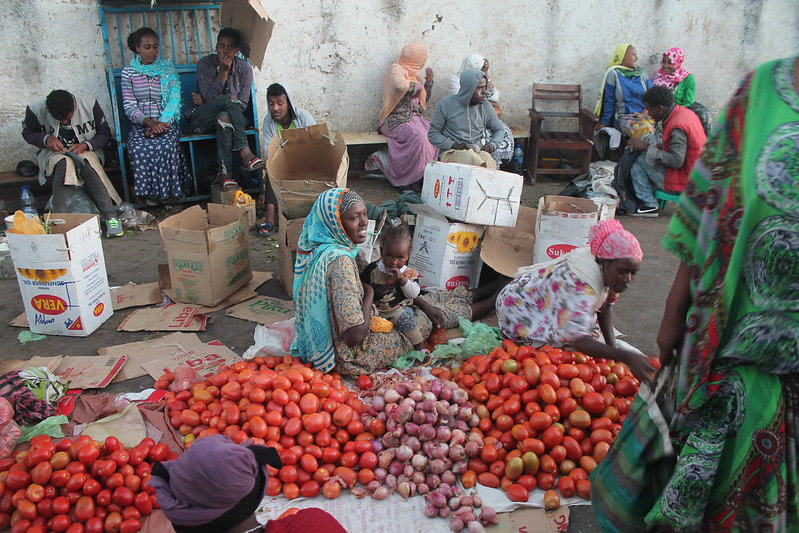
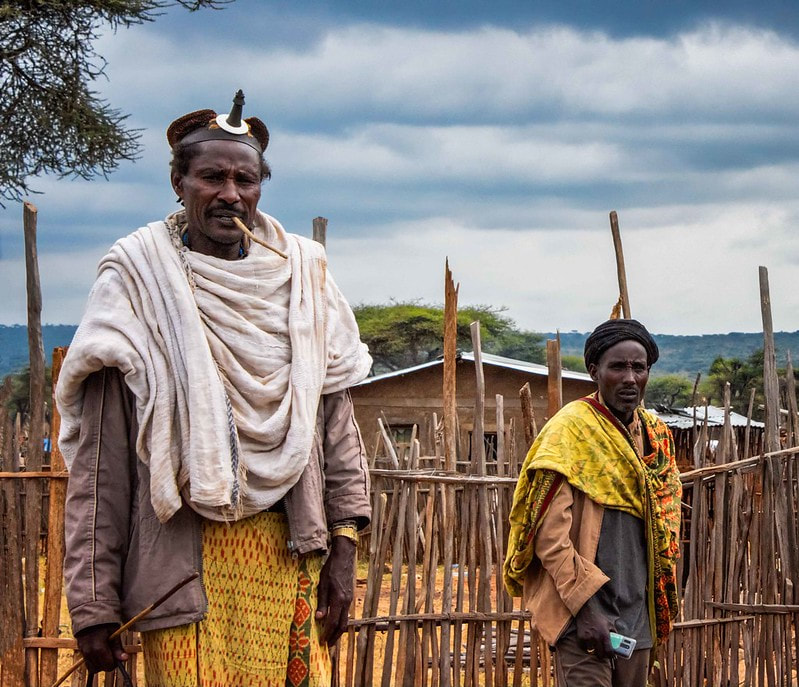
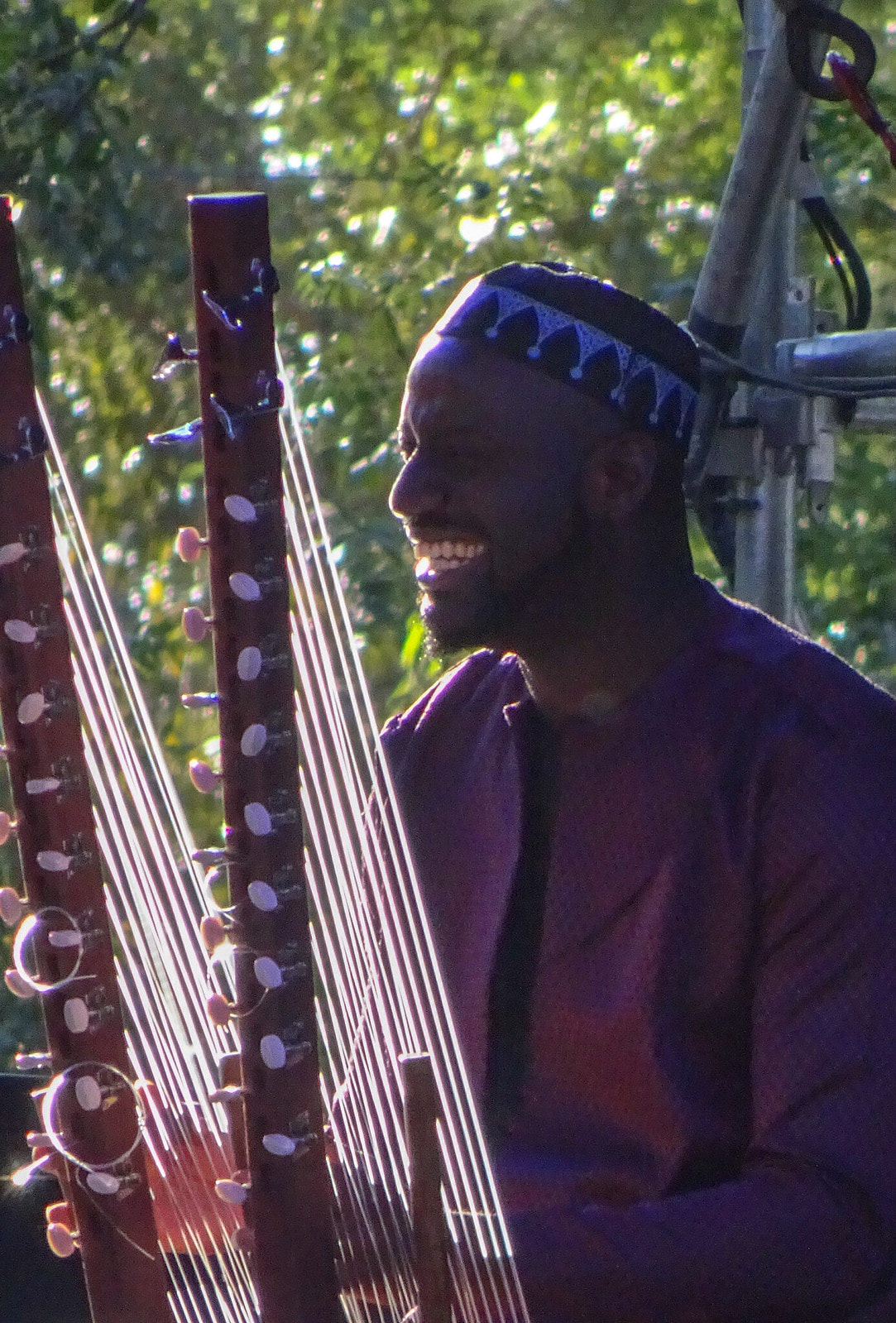
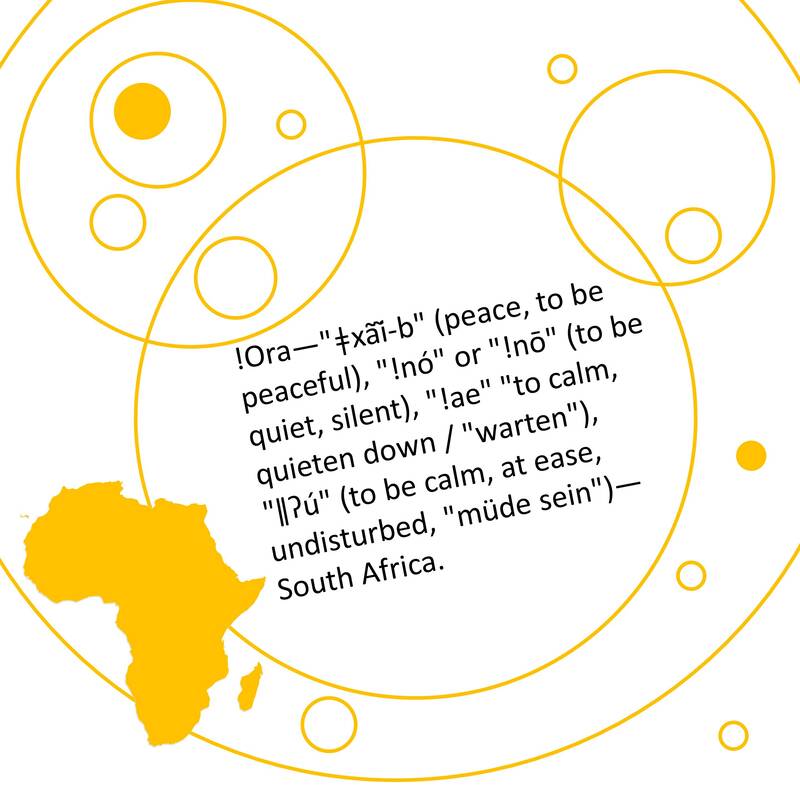
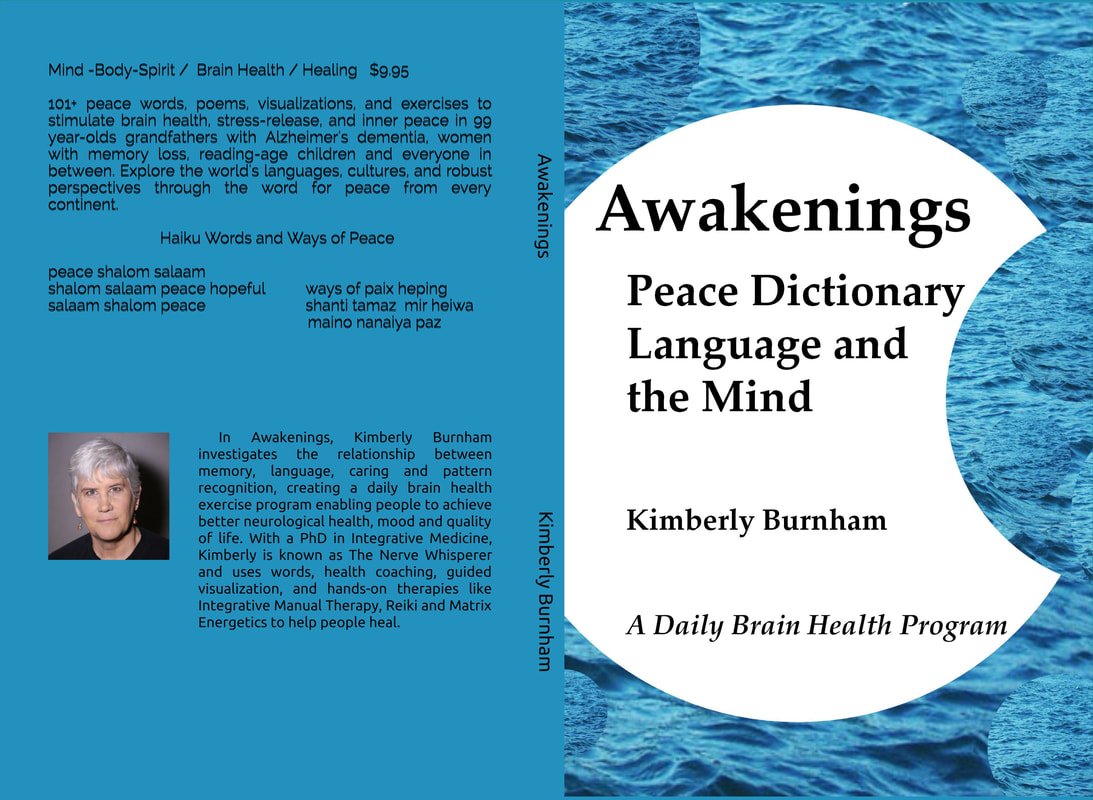
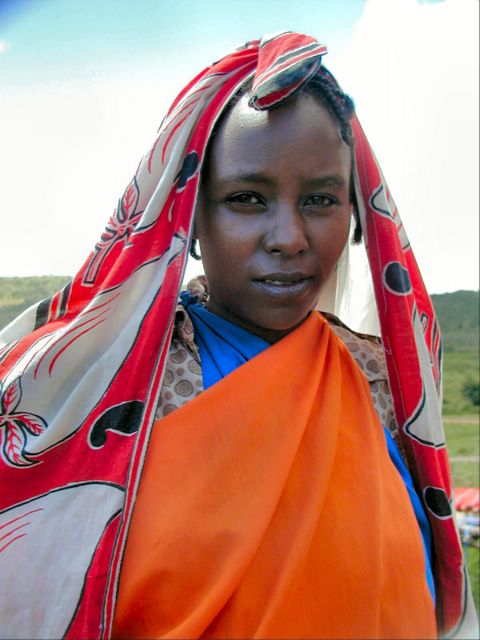
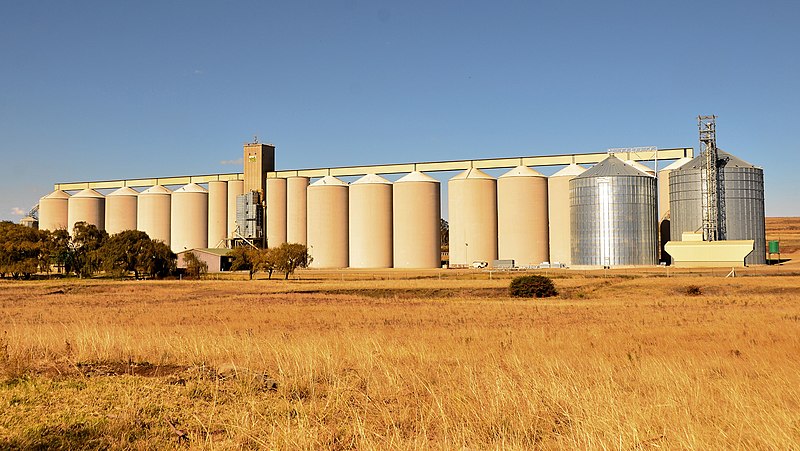
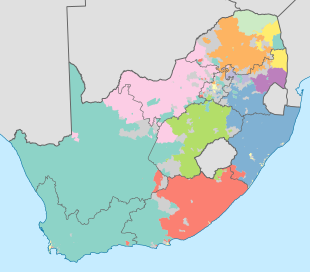
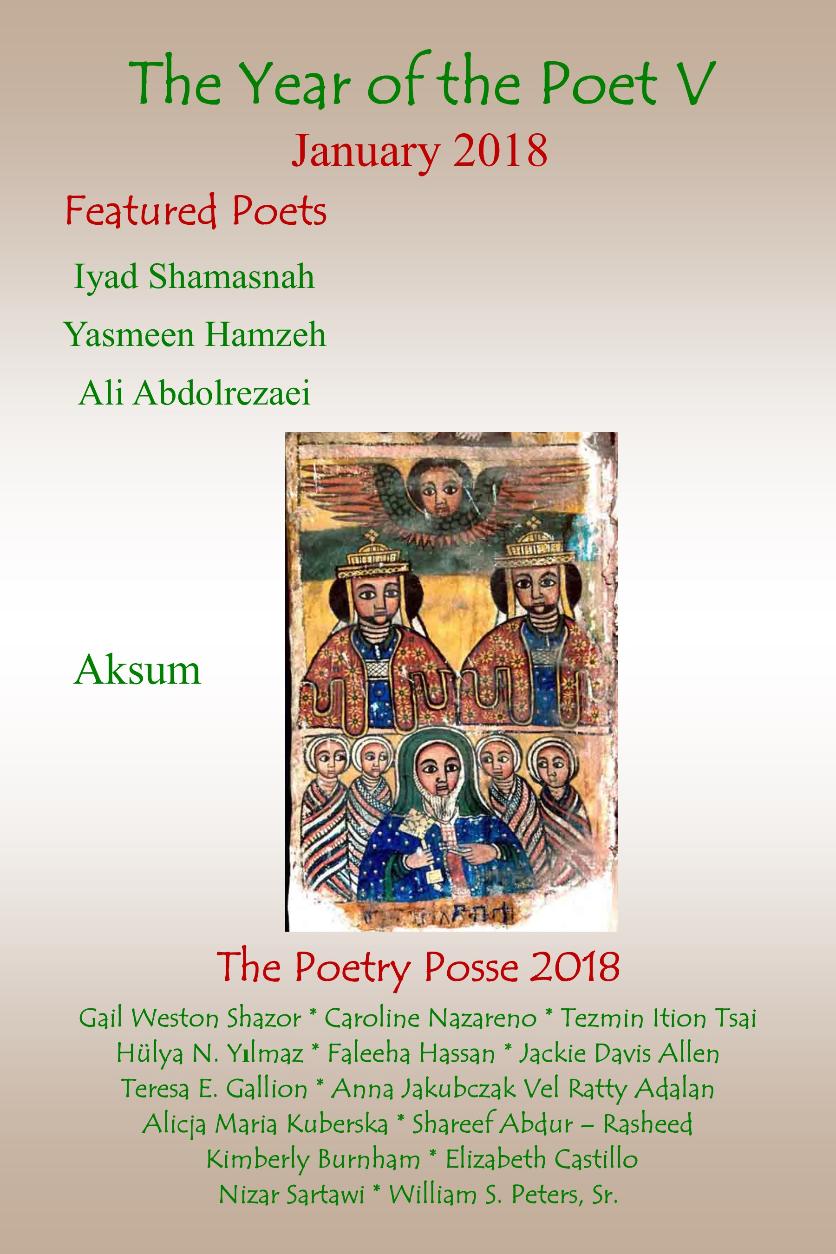
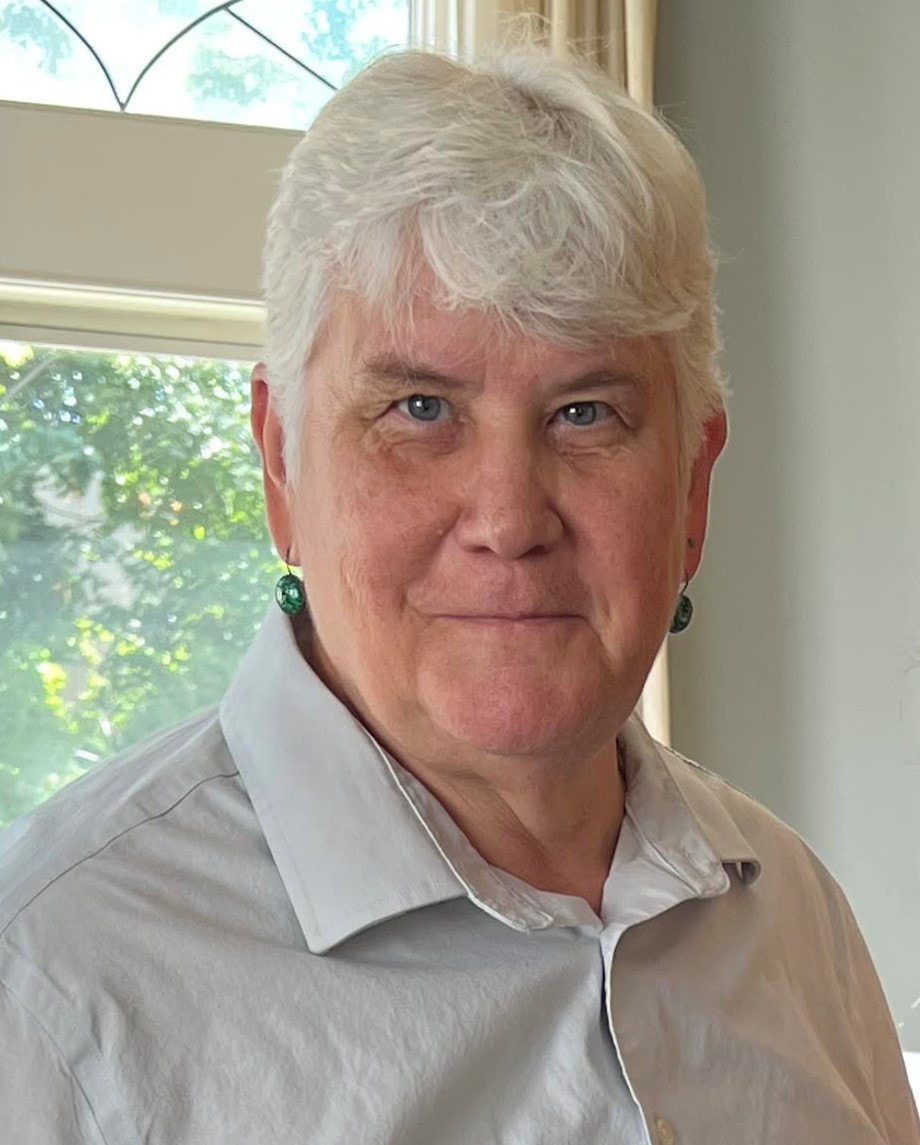
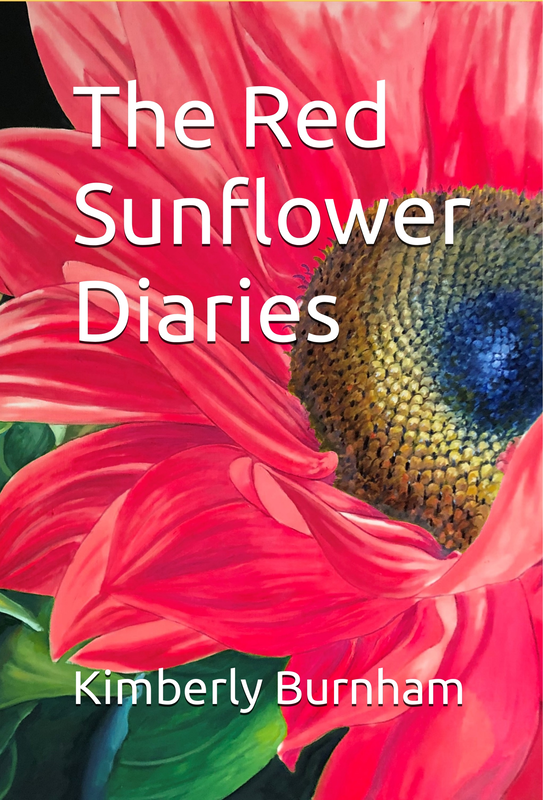
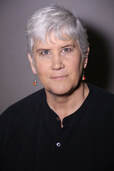

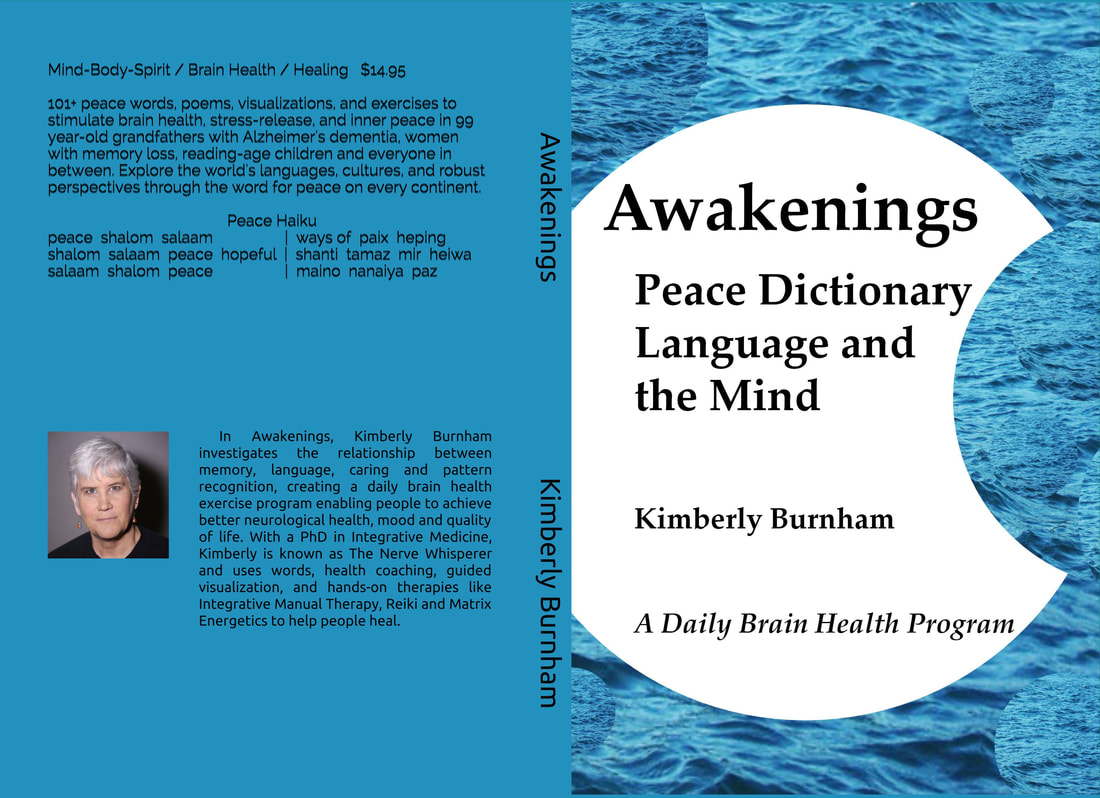
 RSS Feed
RSS Feed
